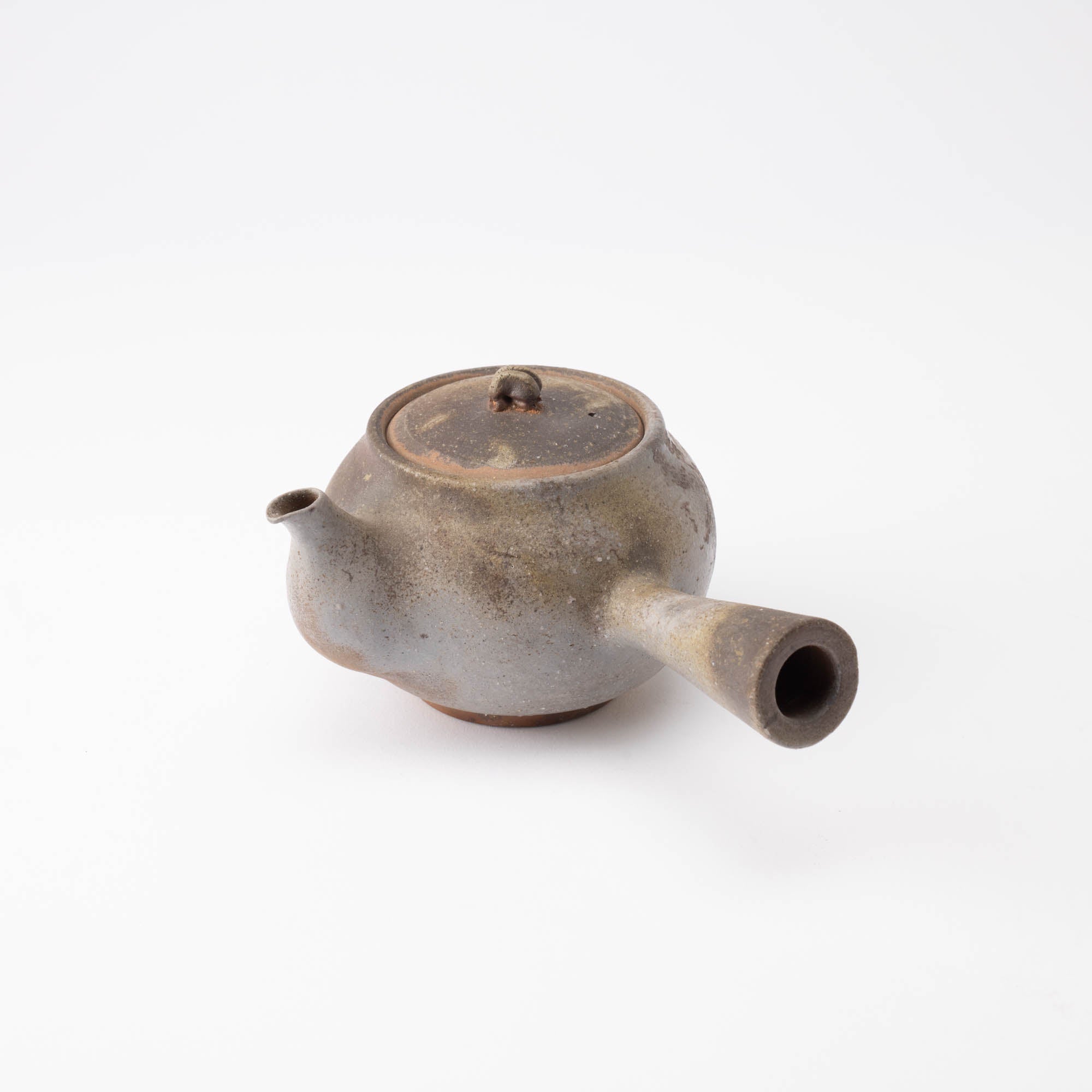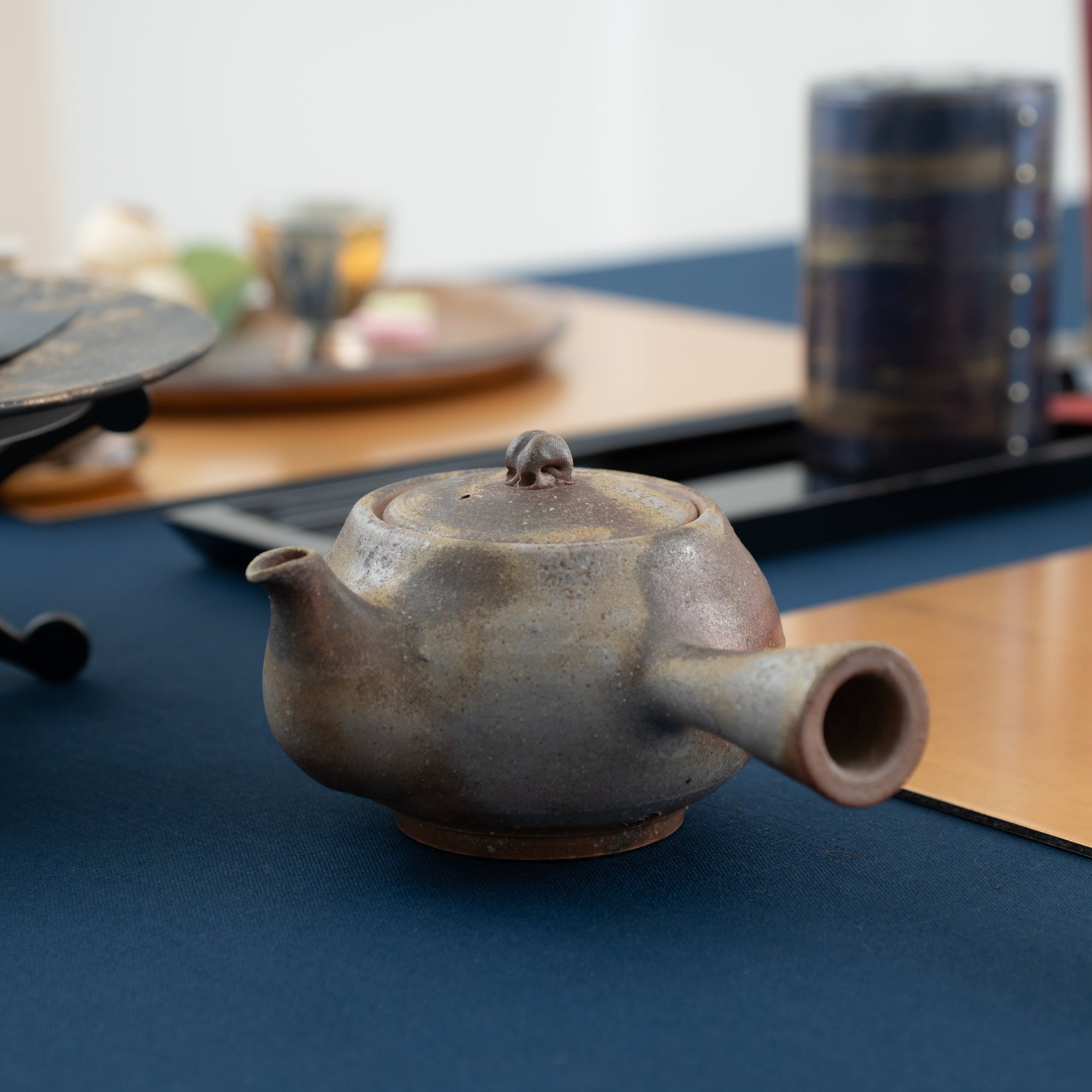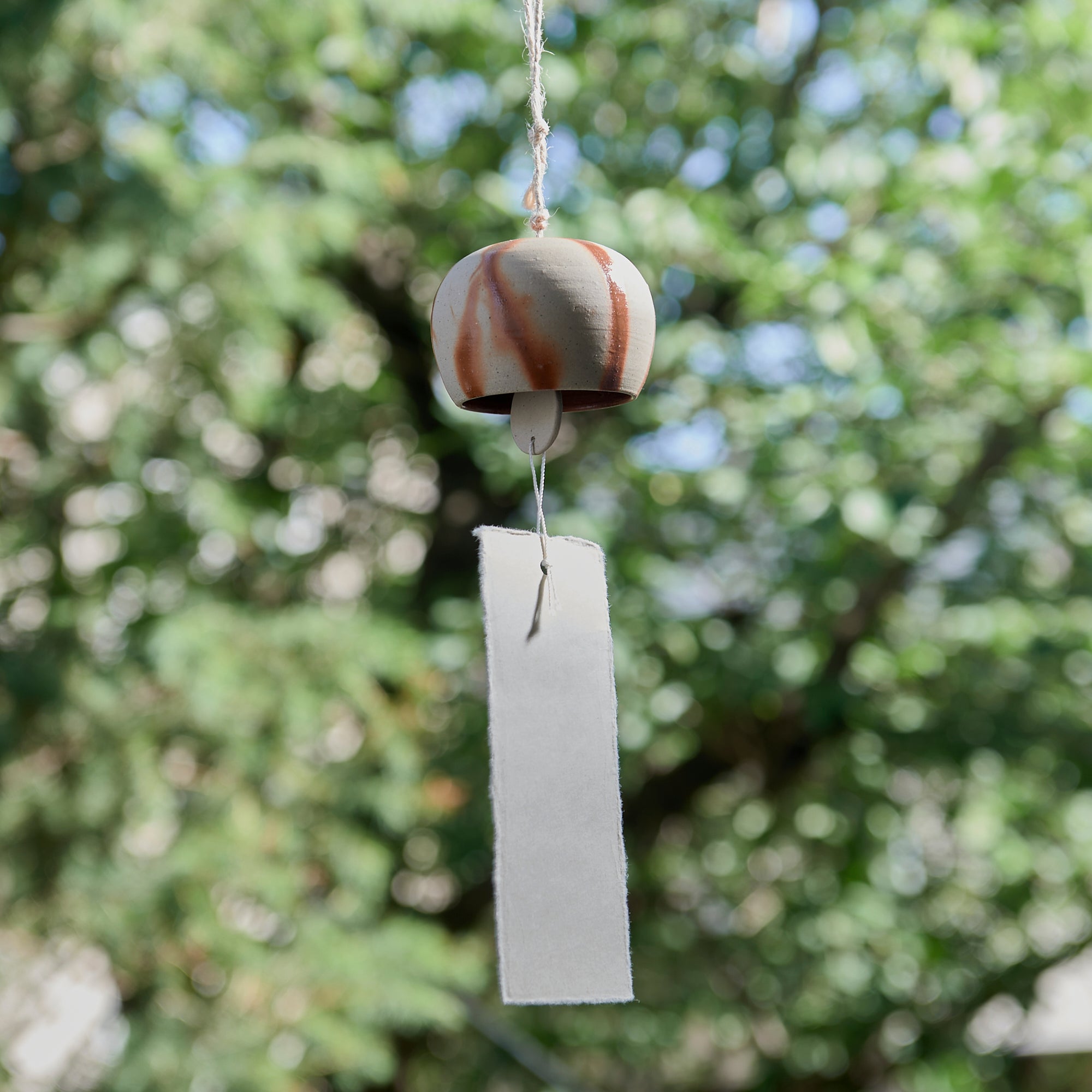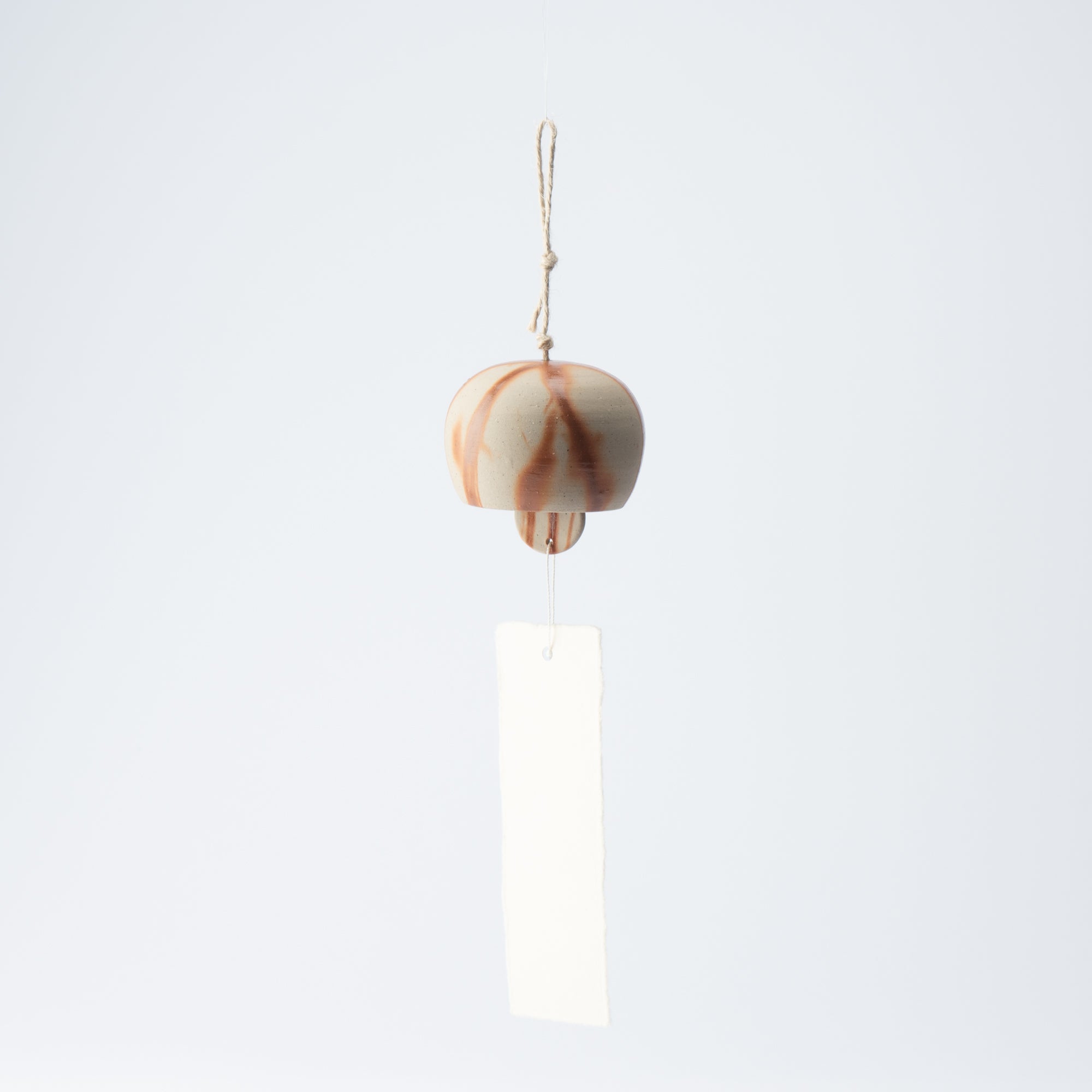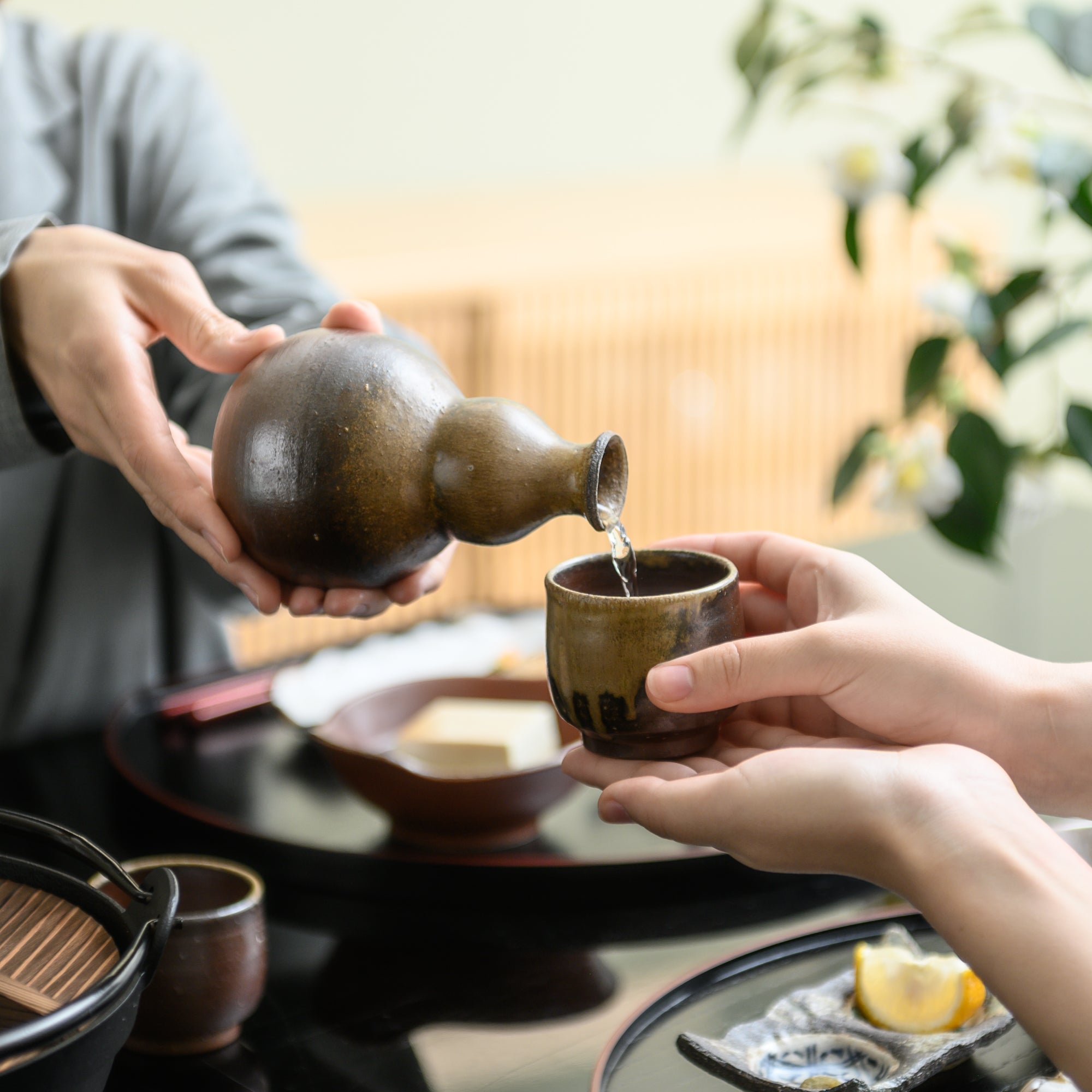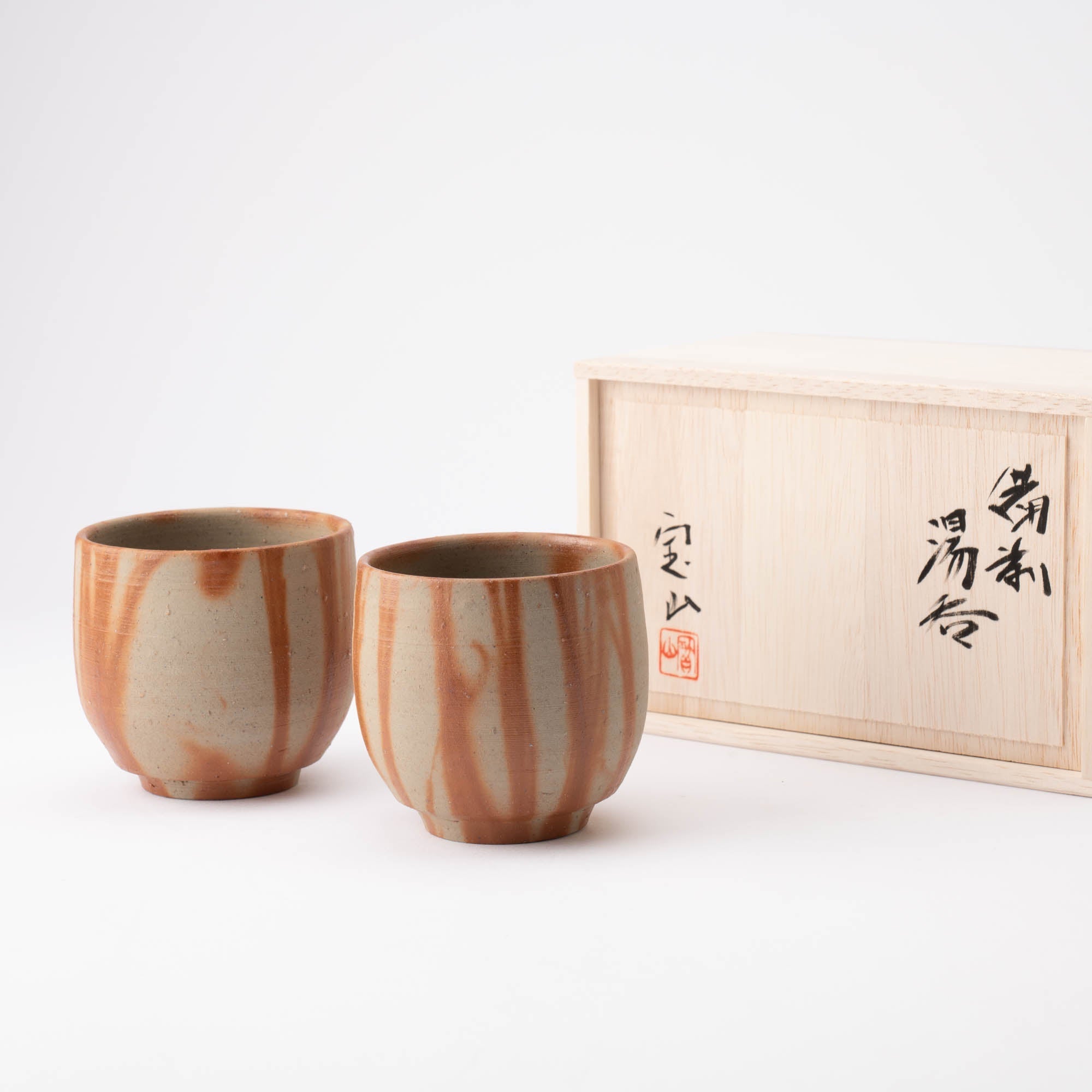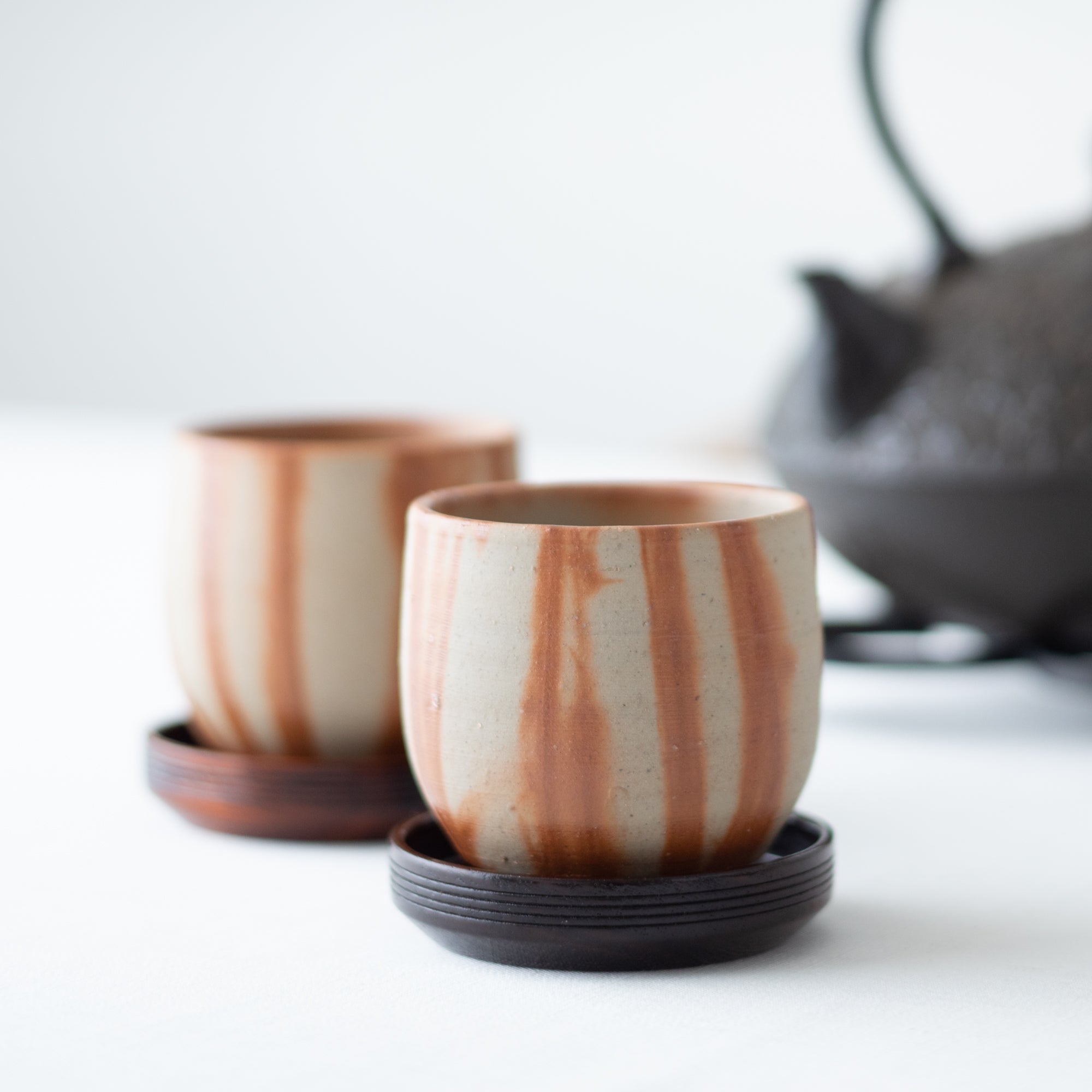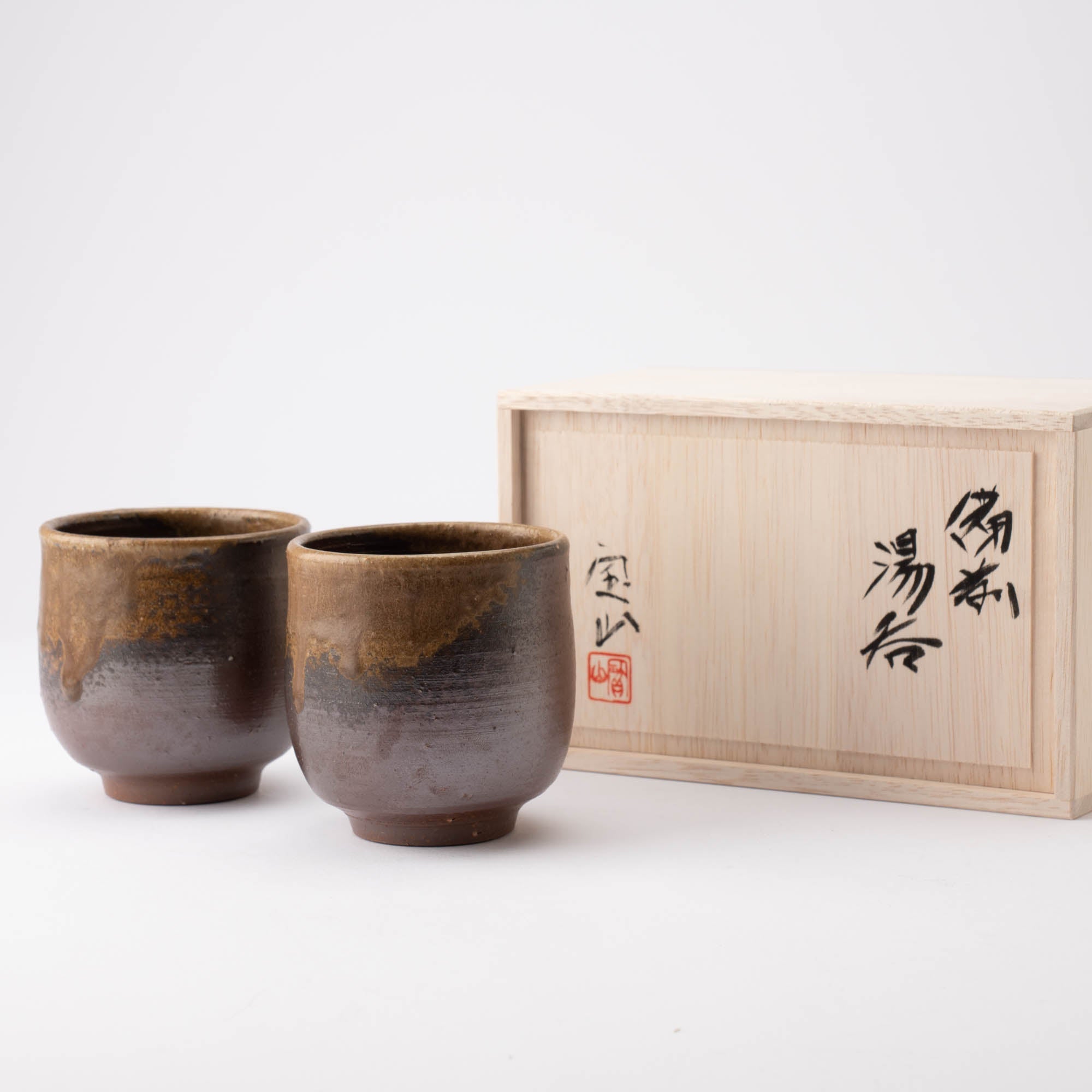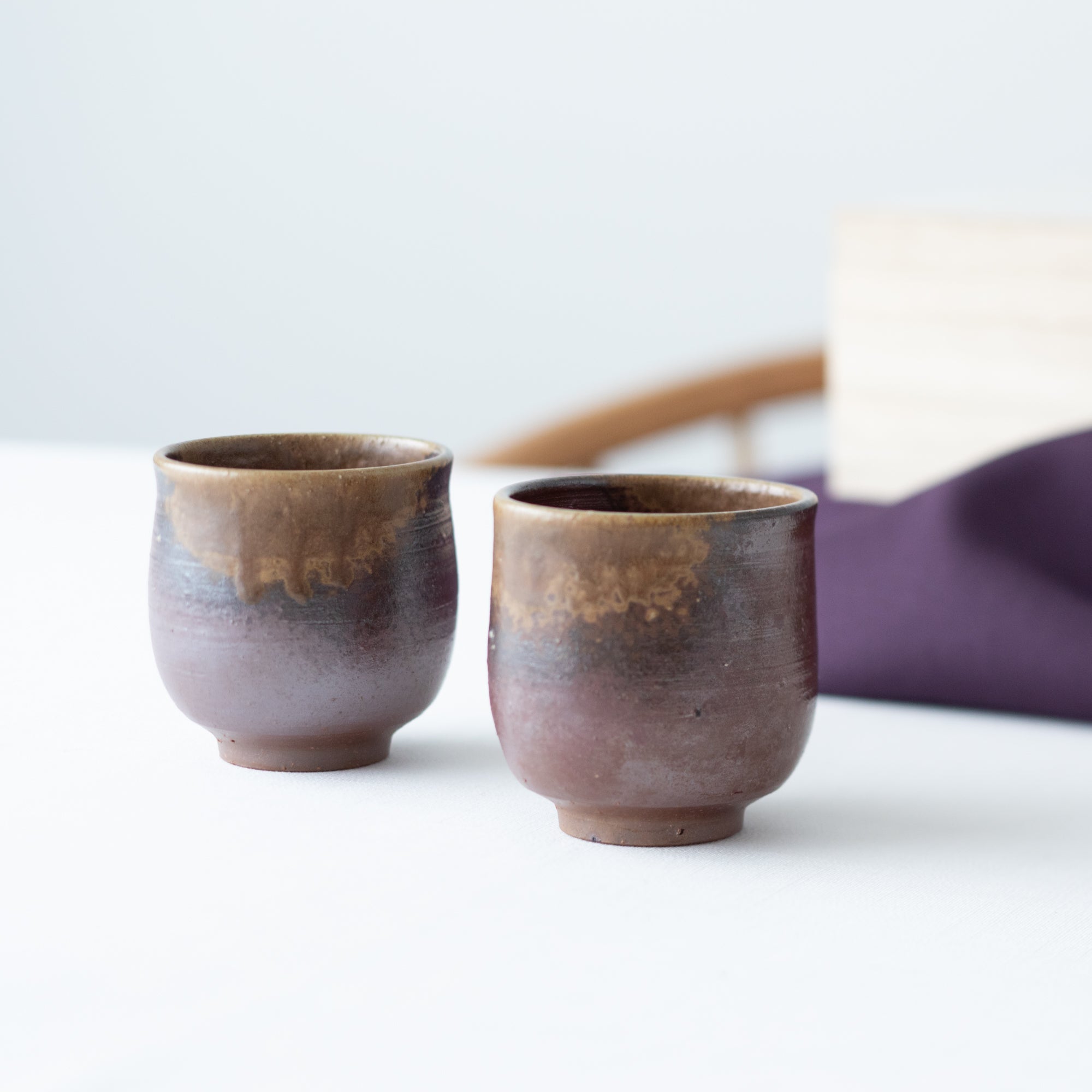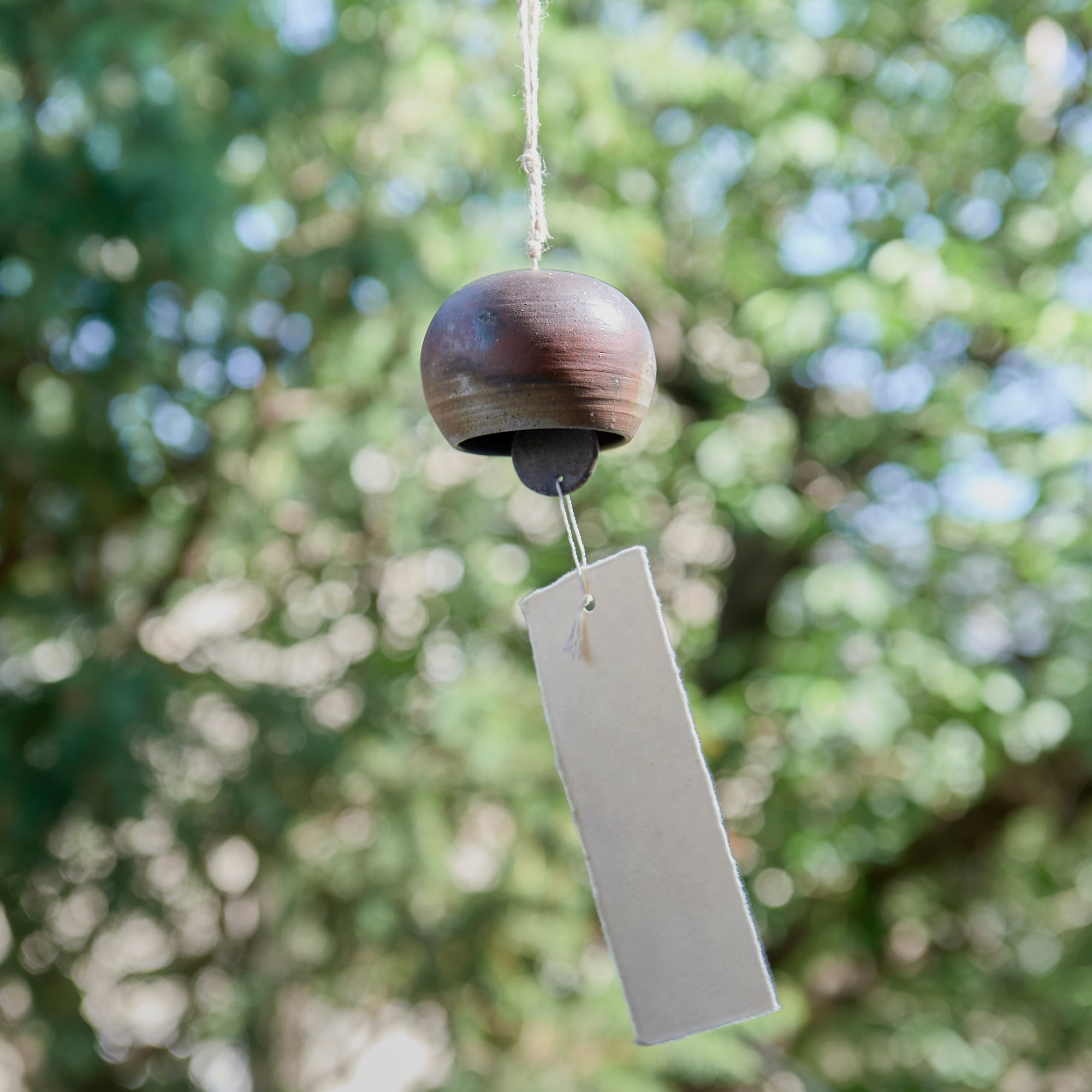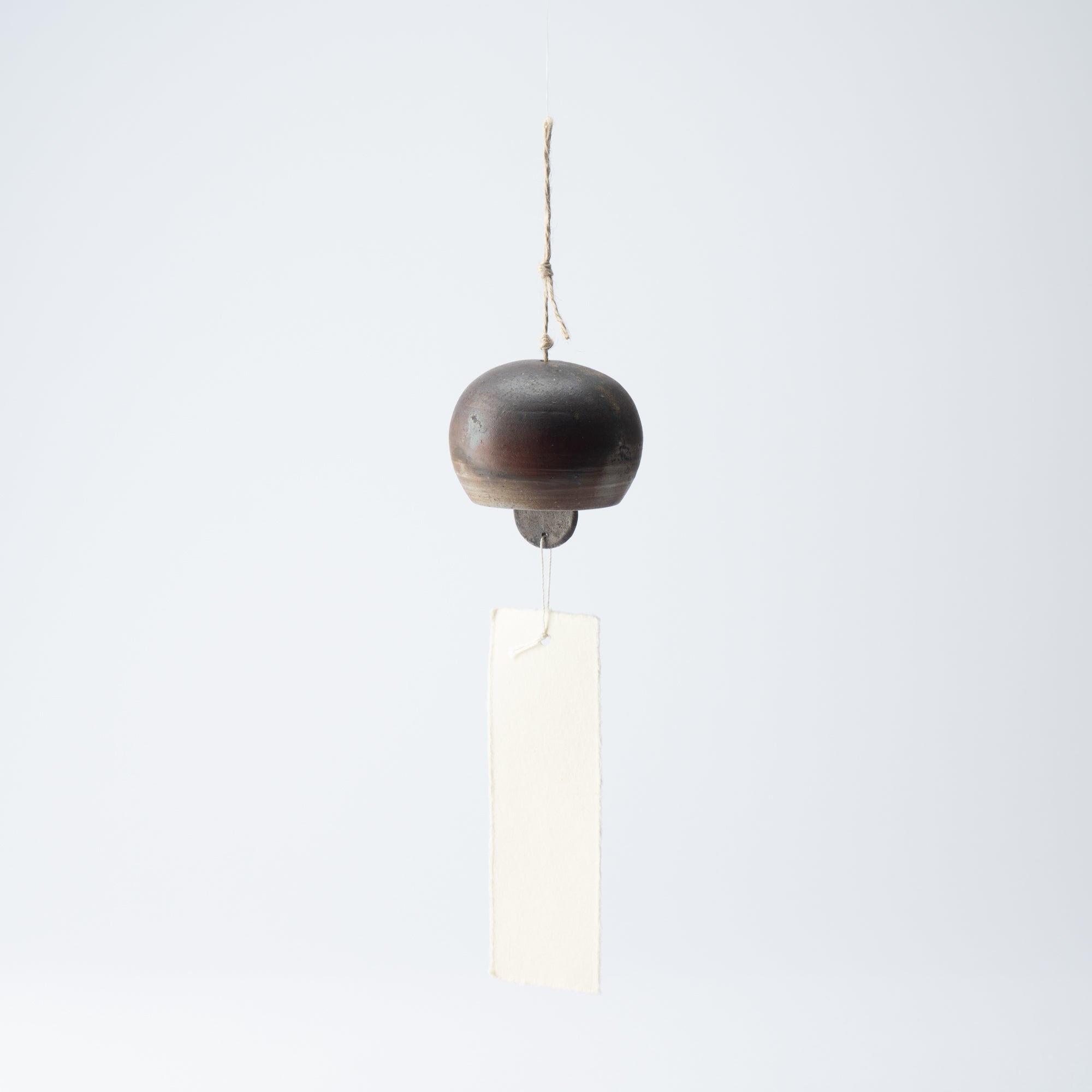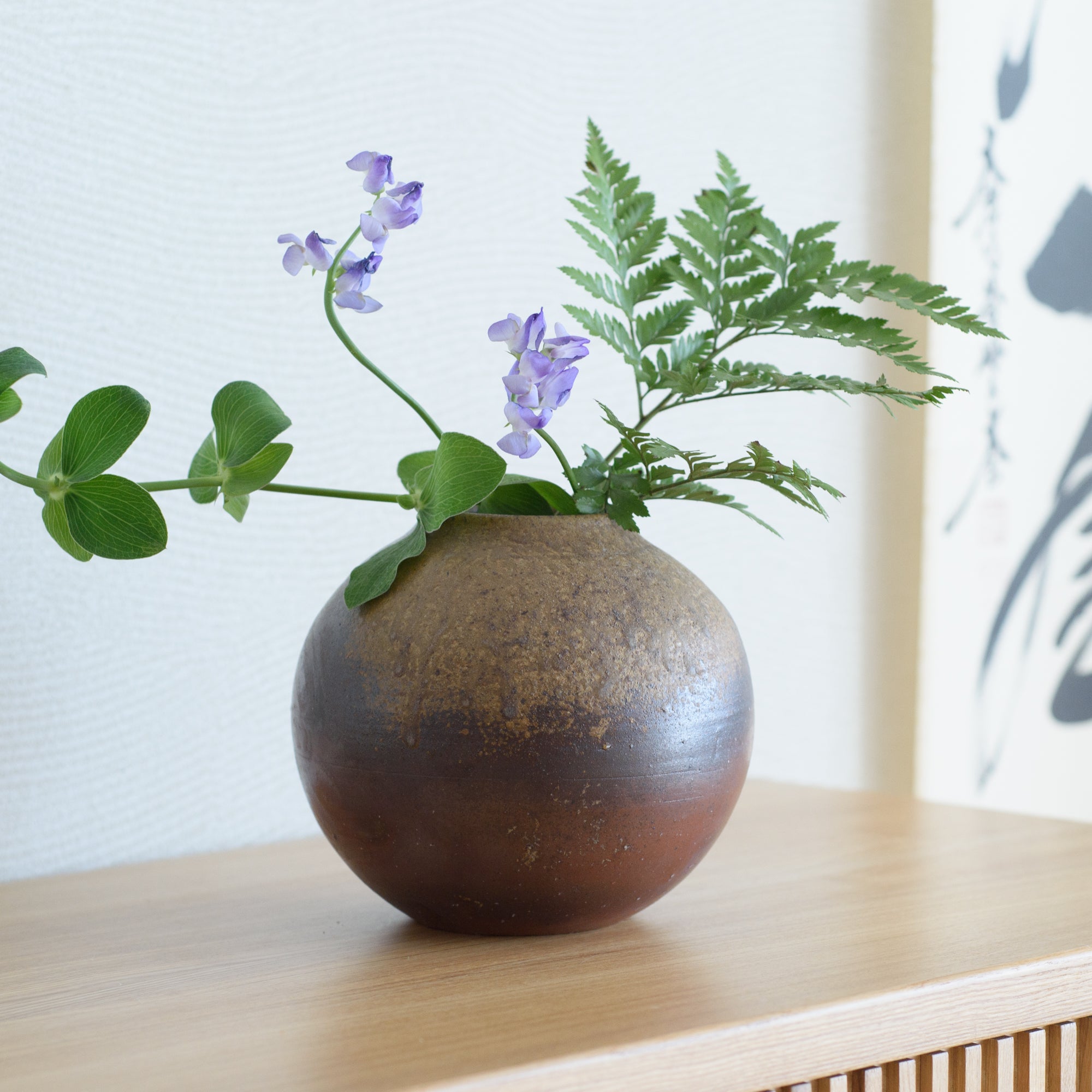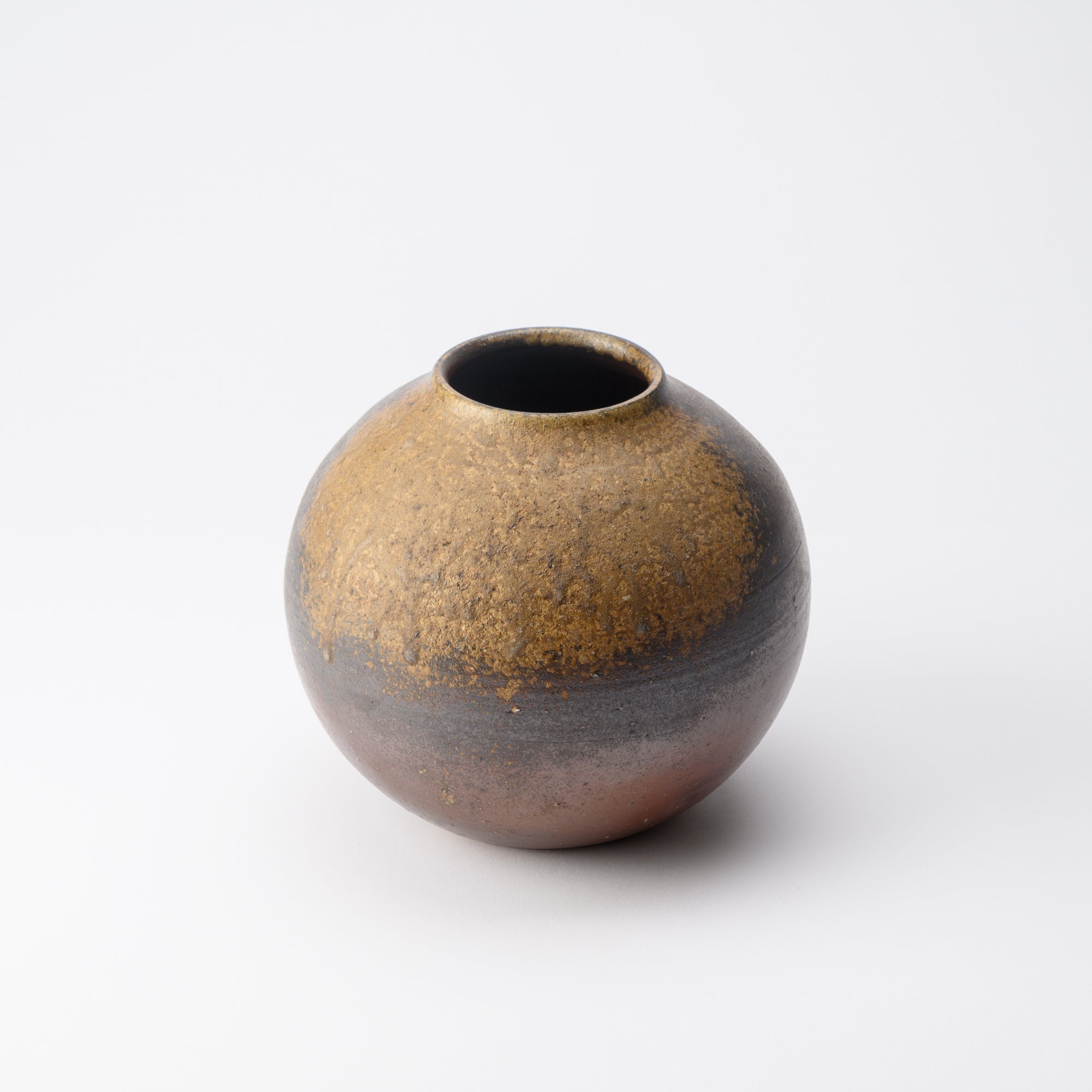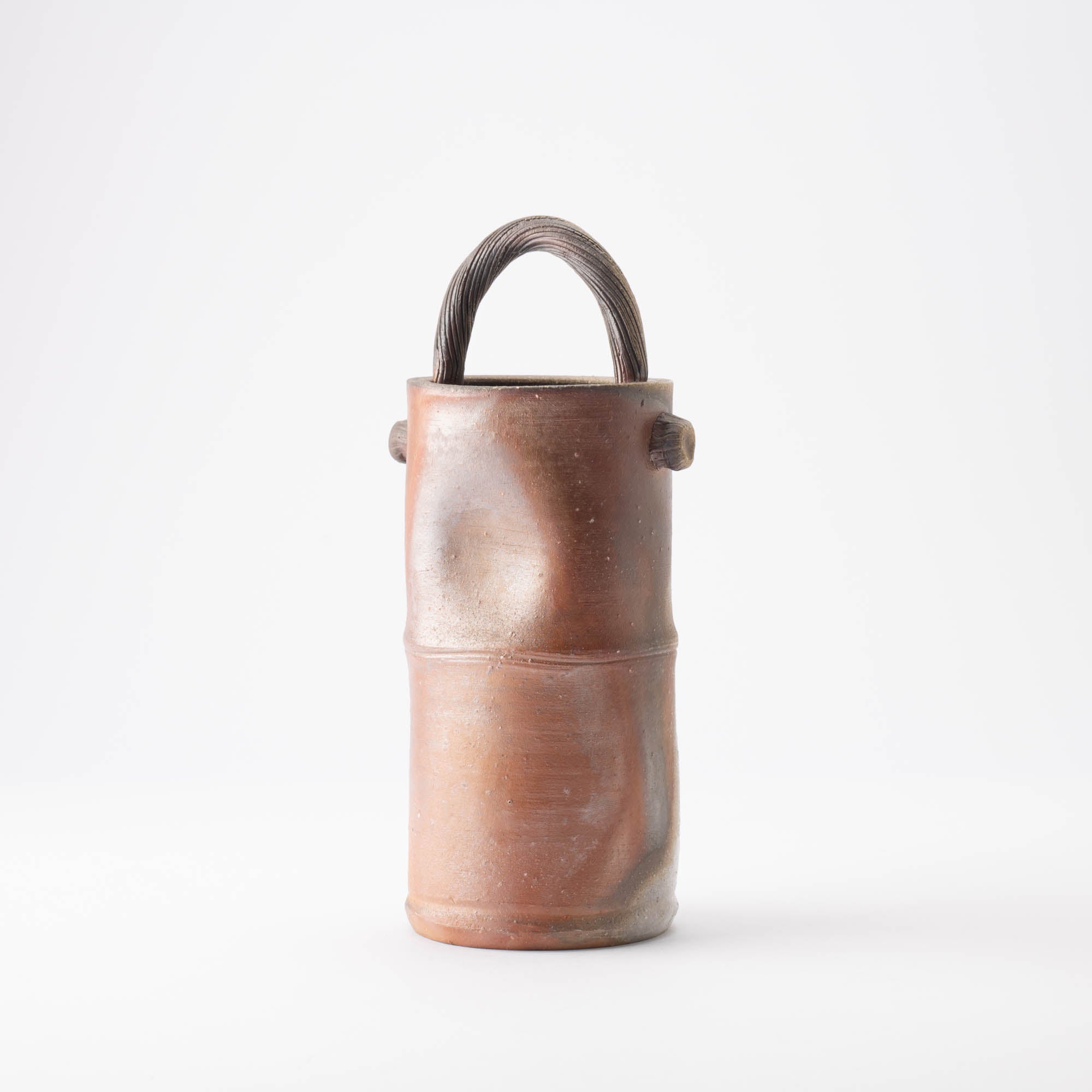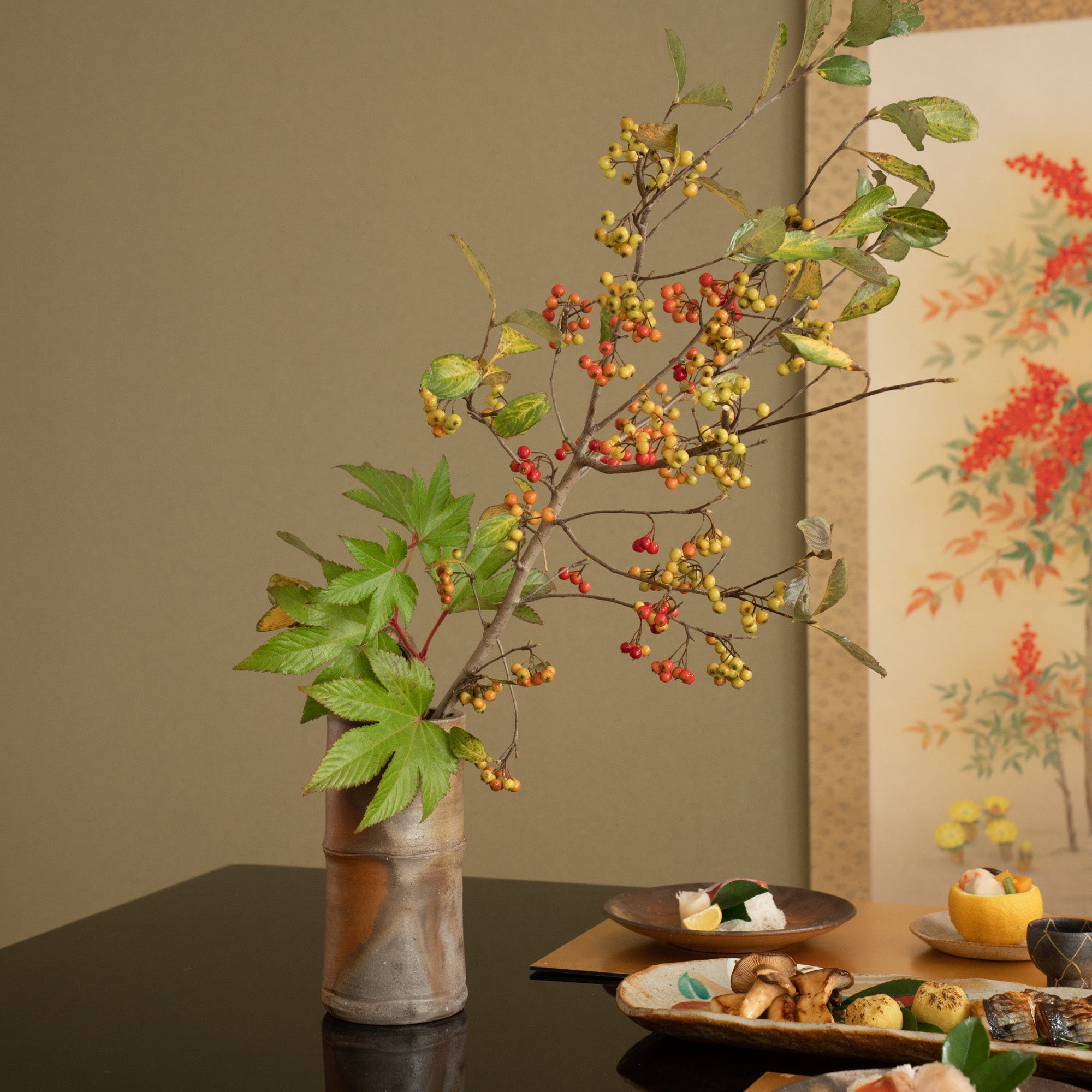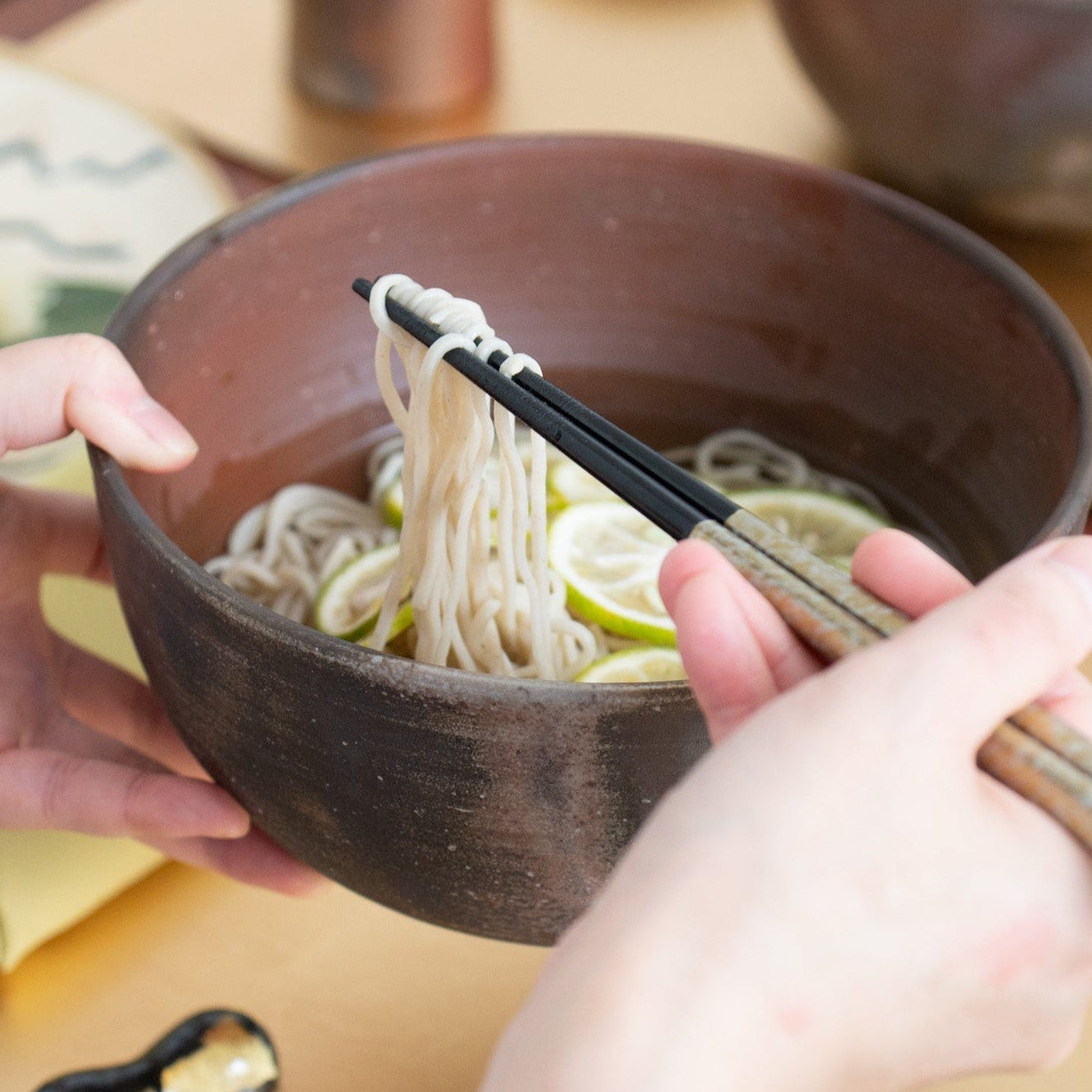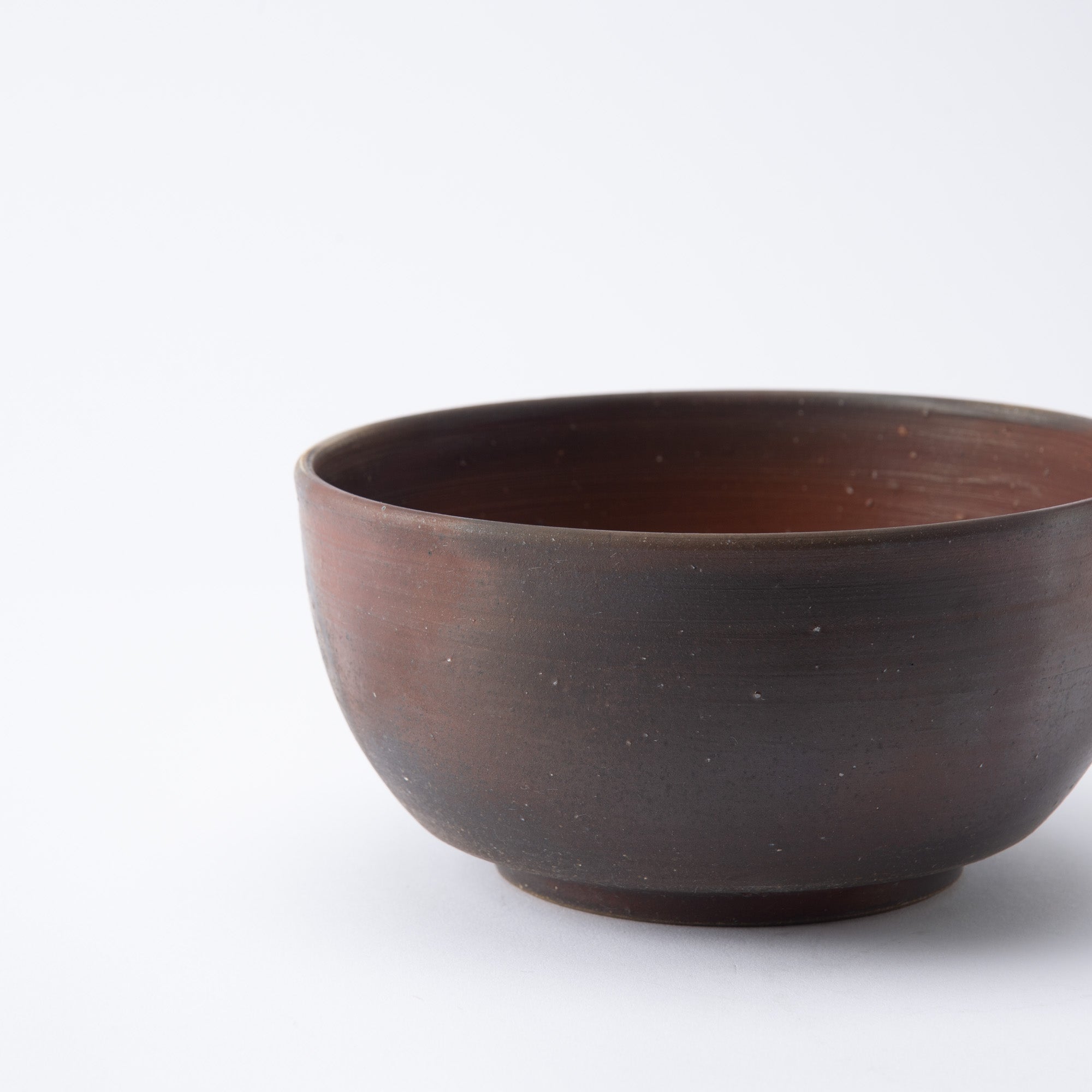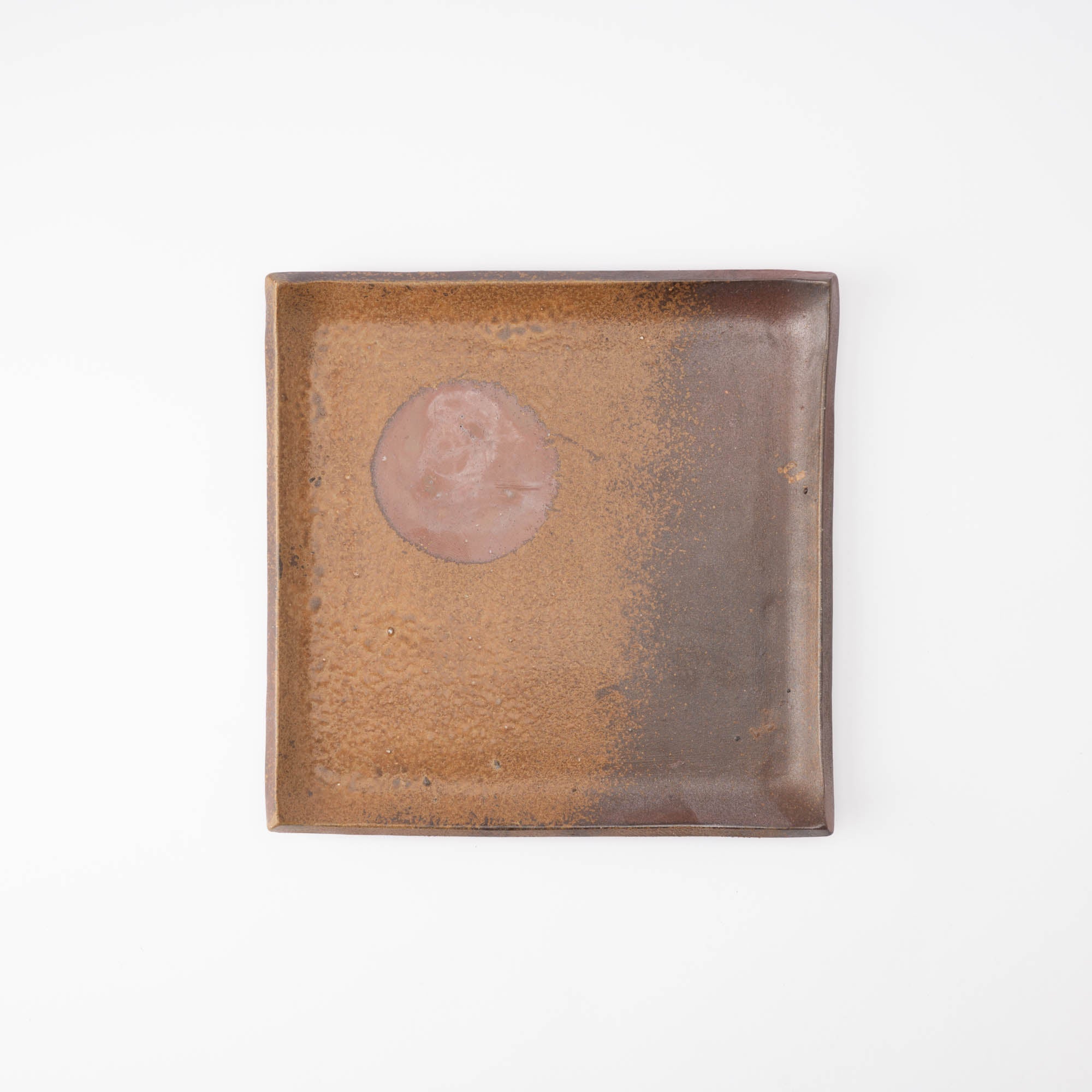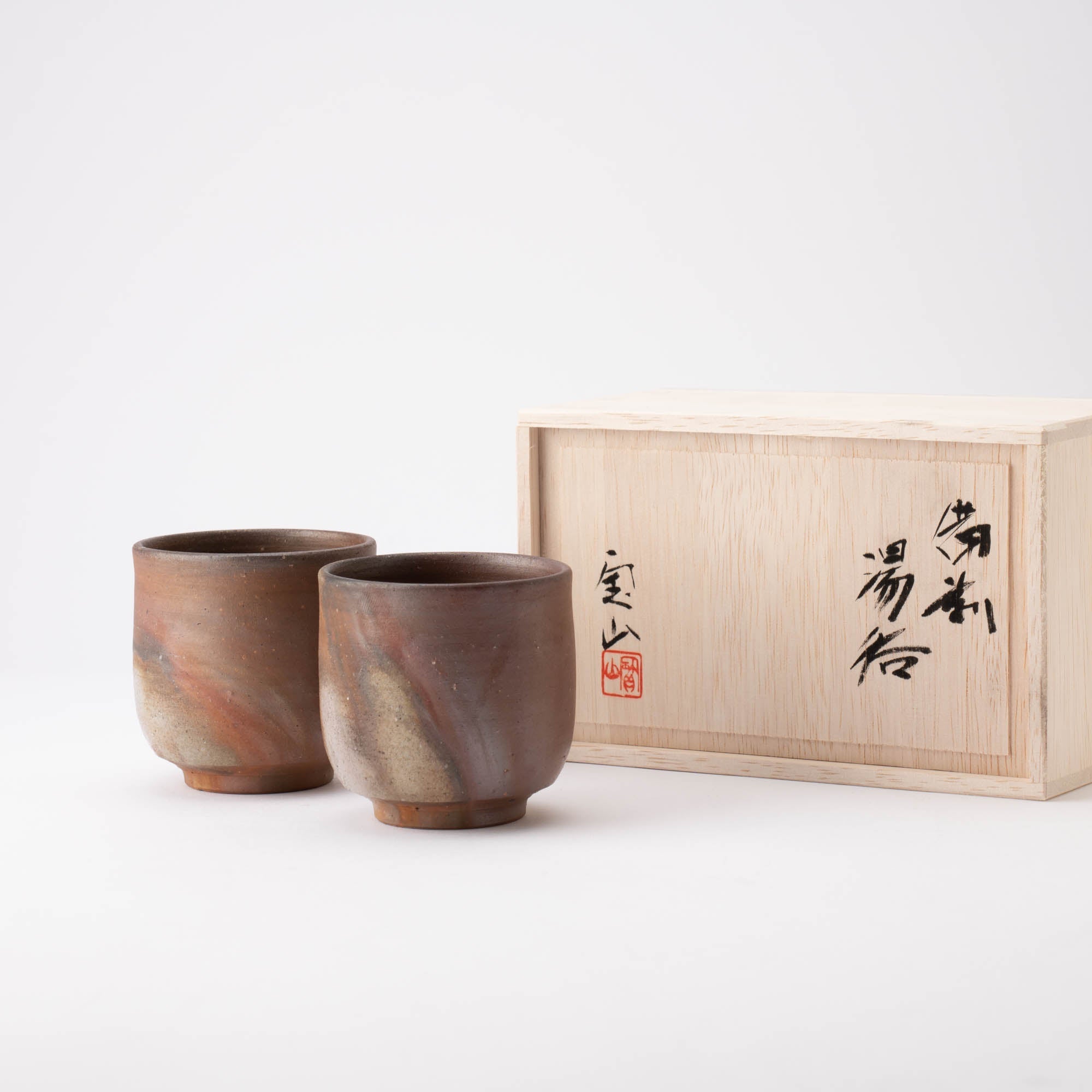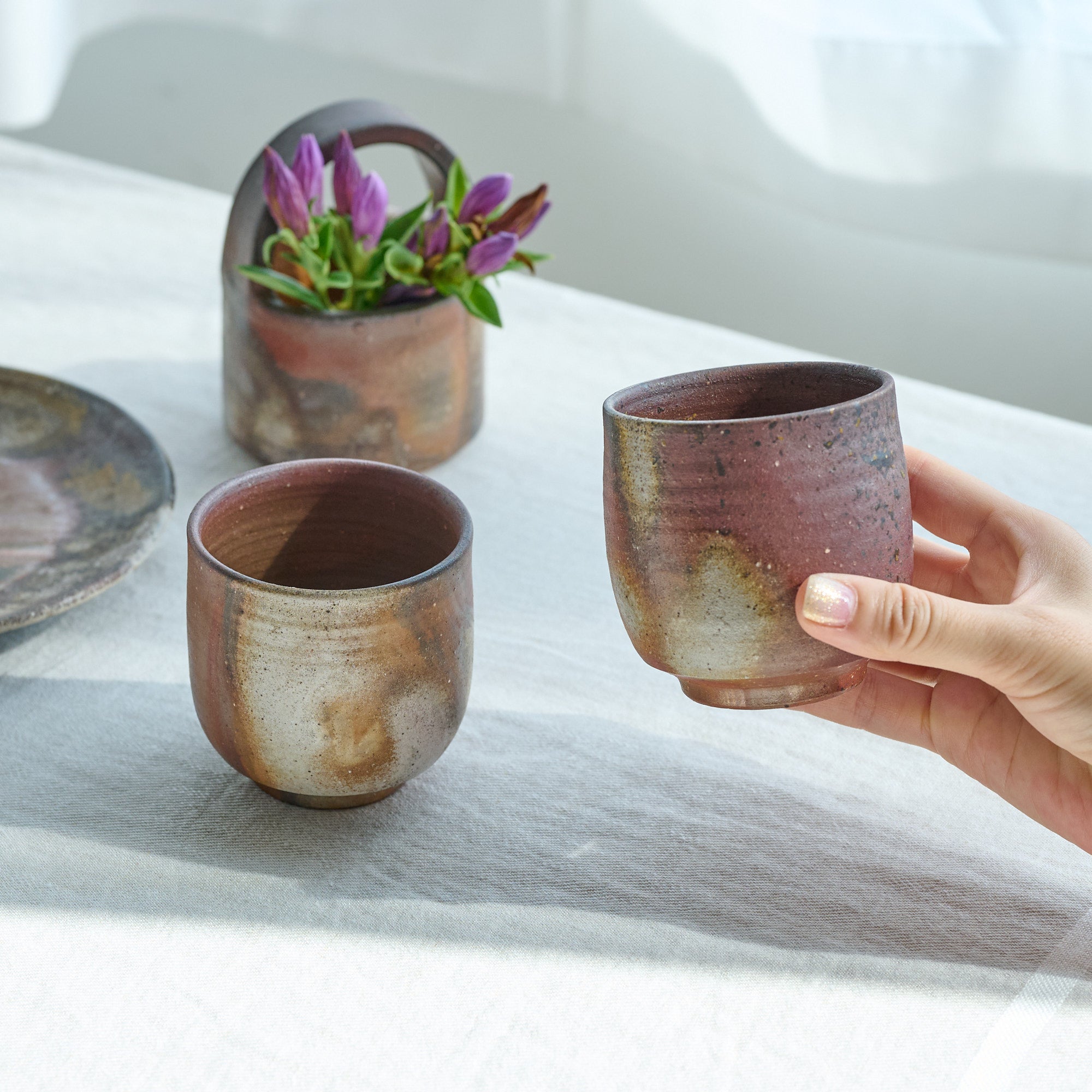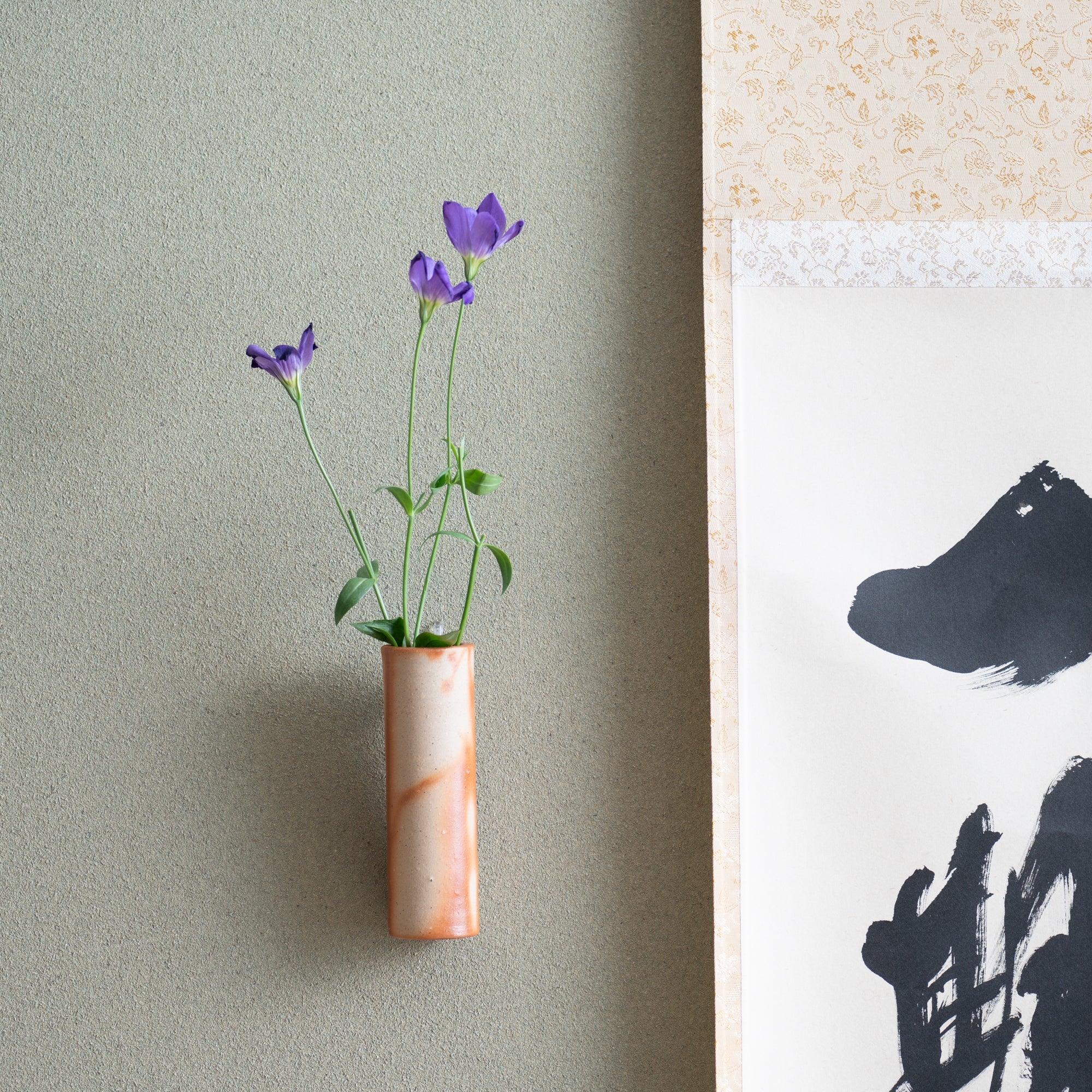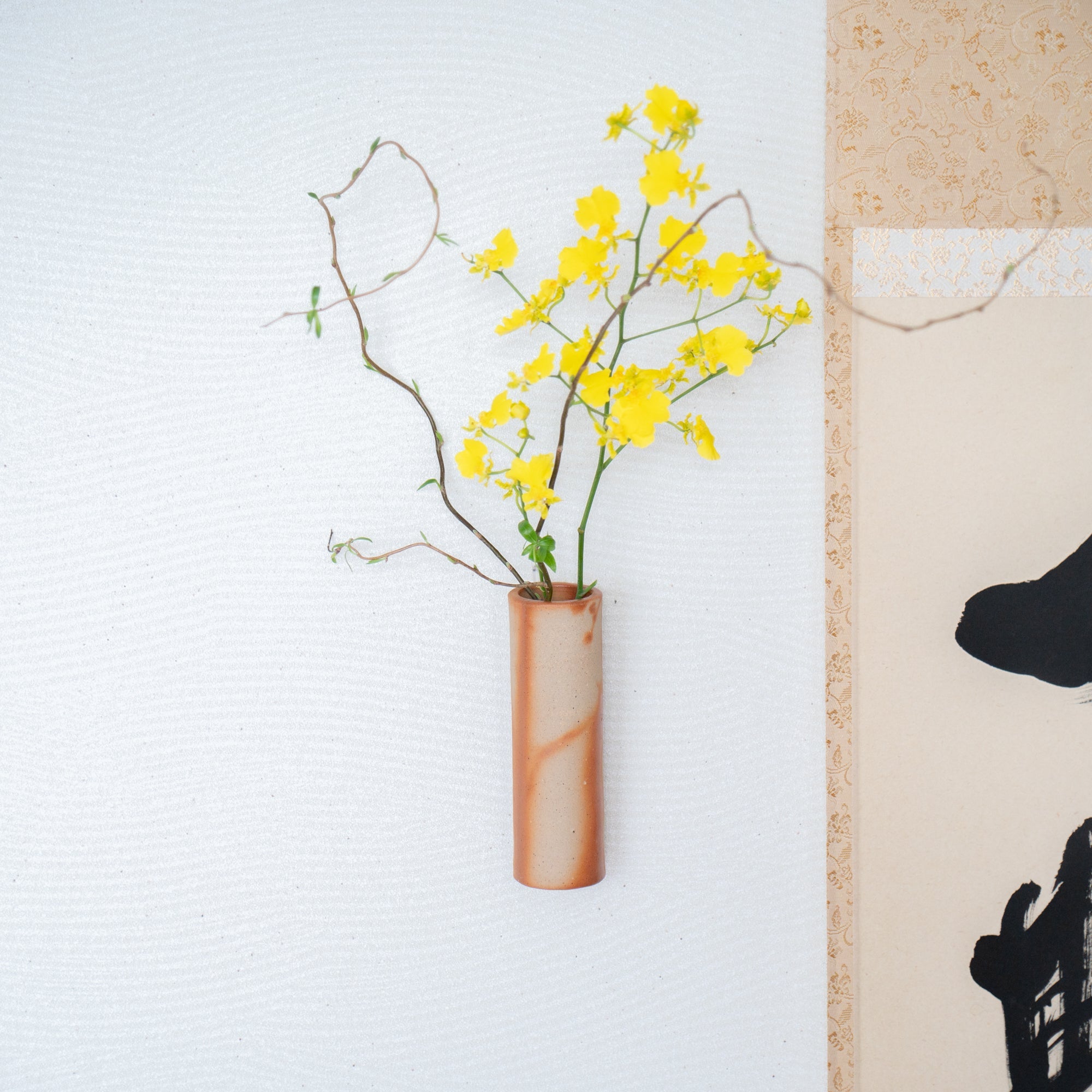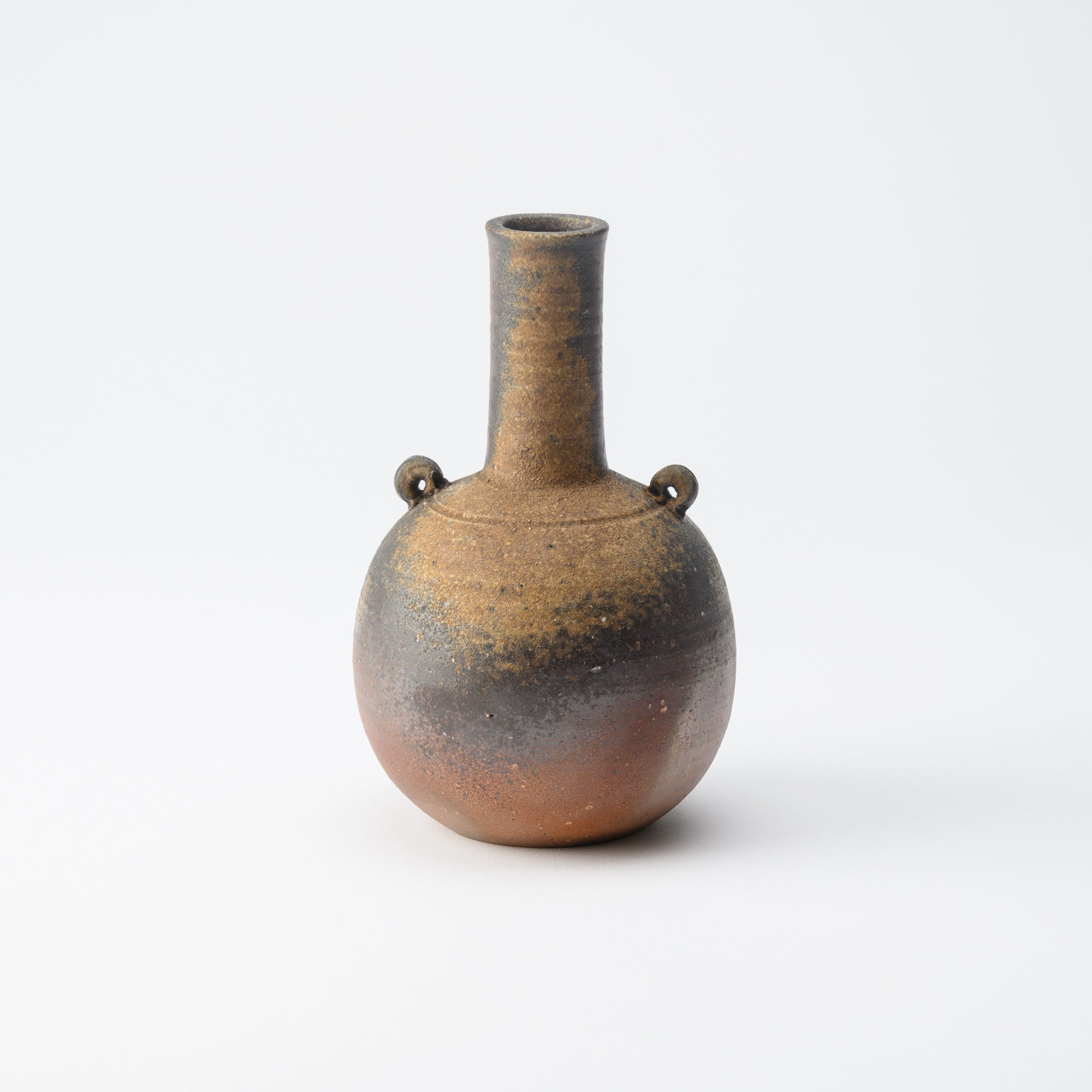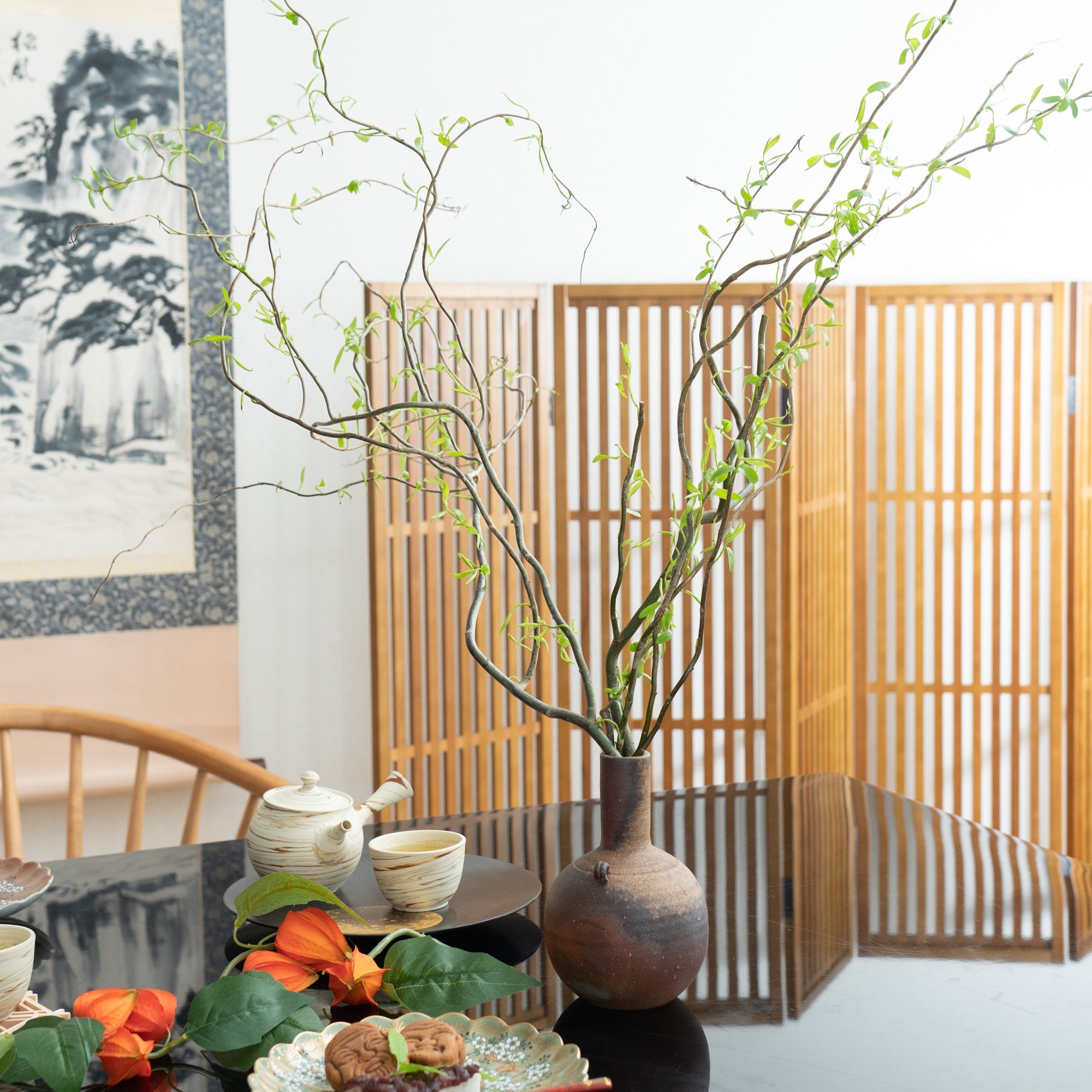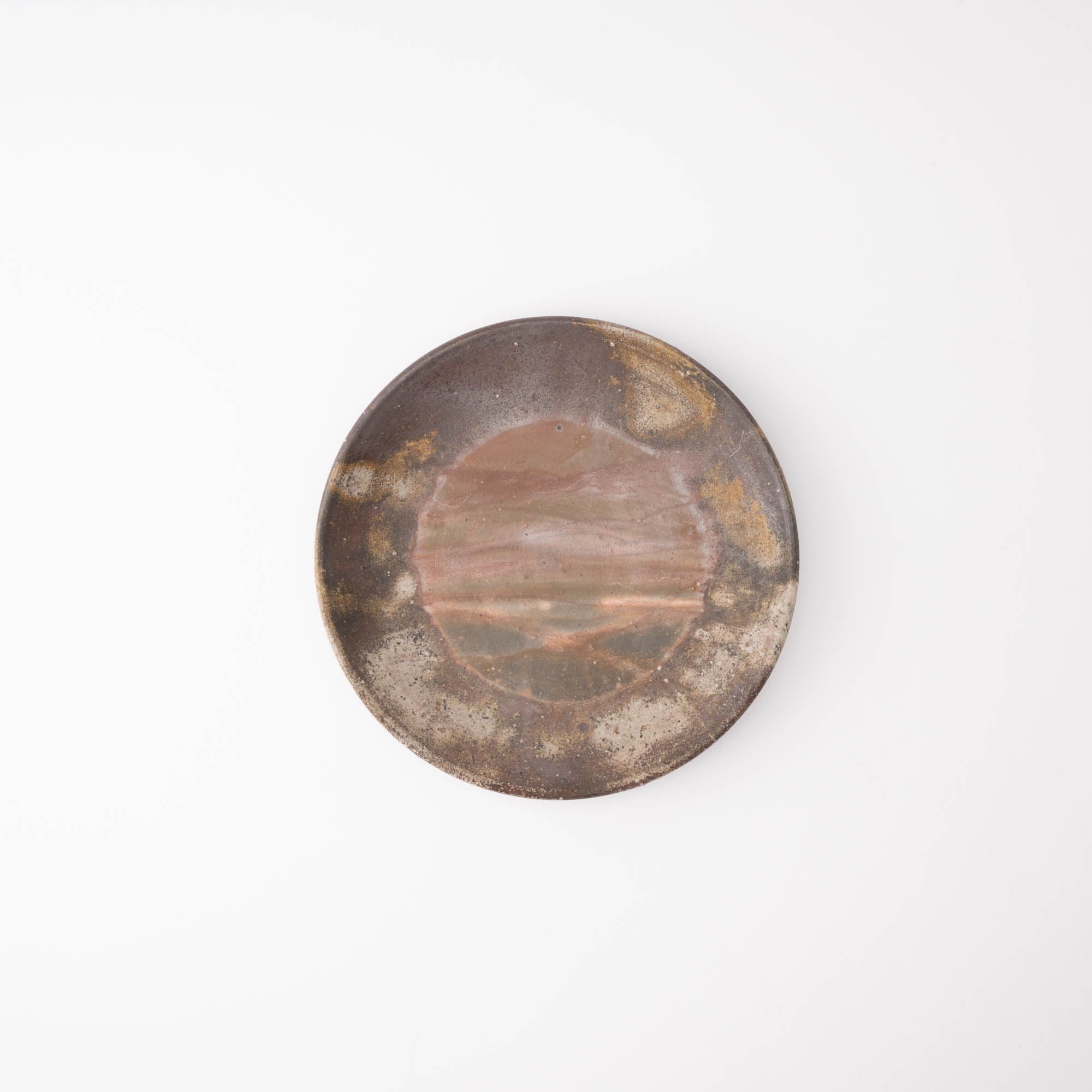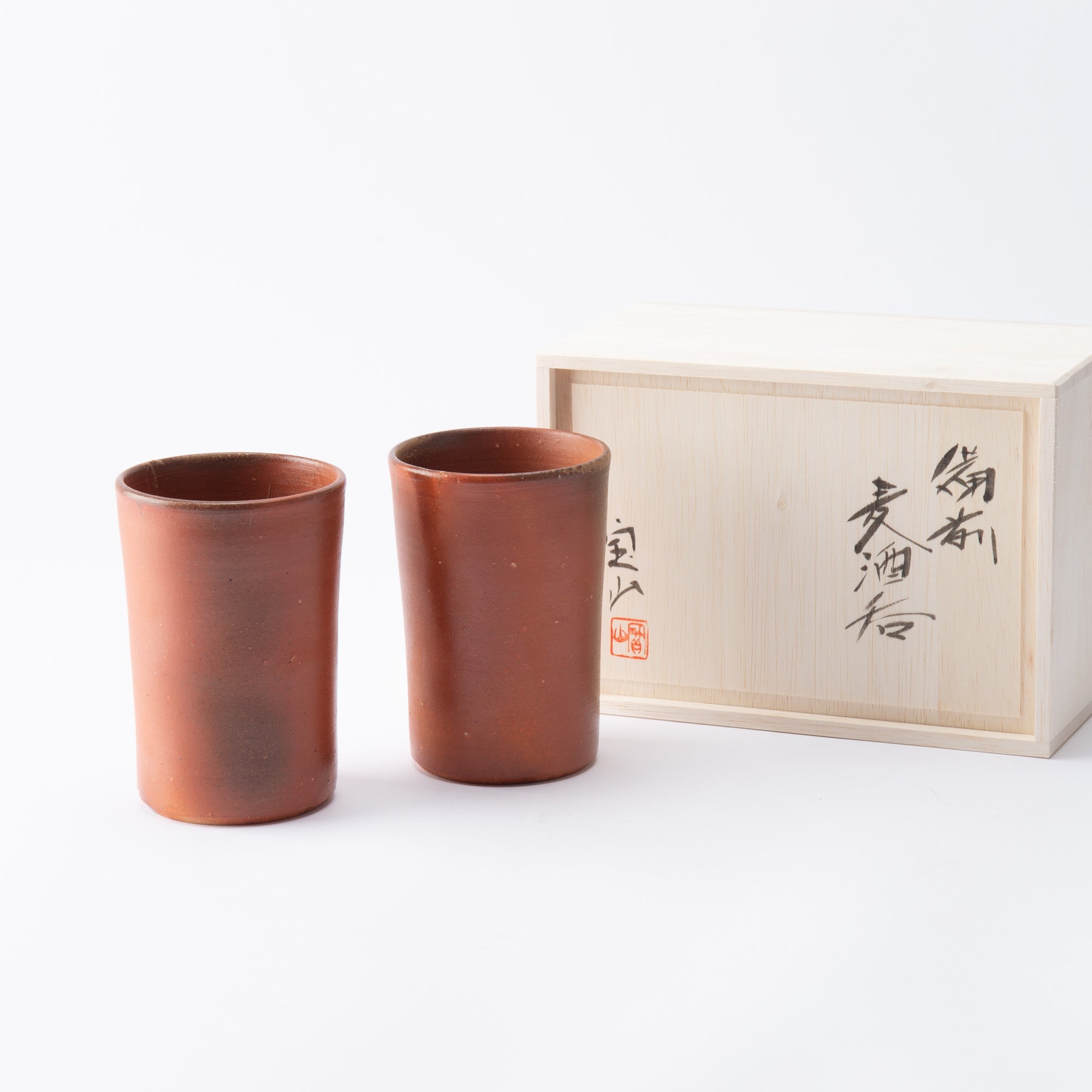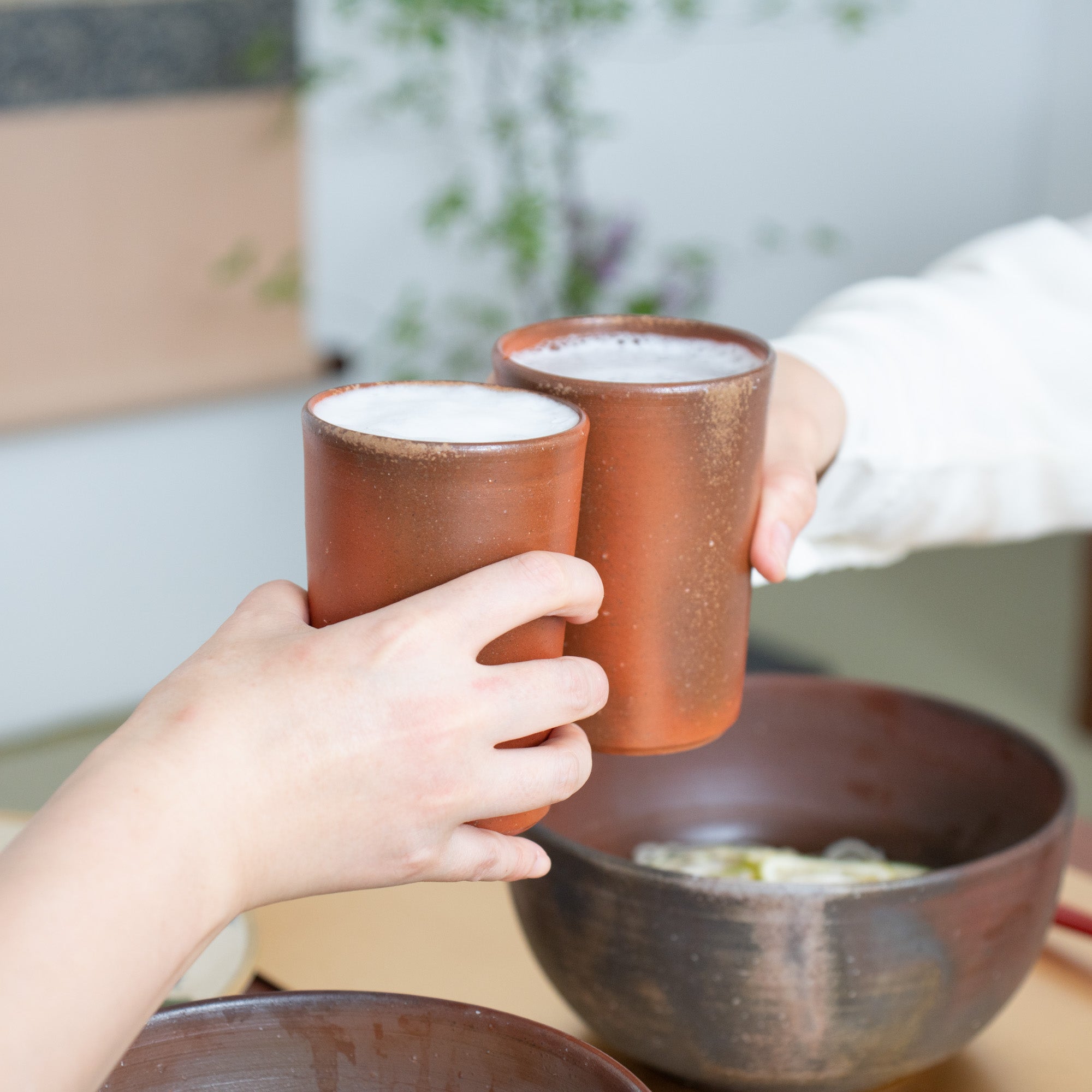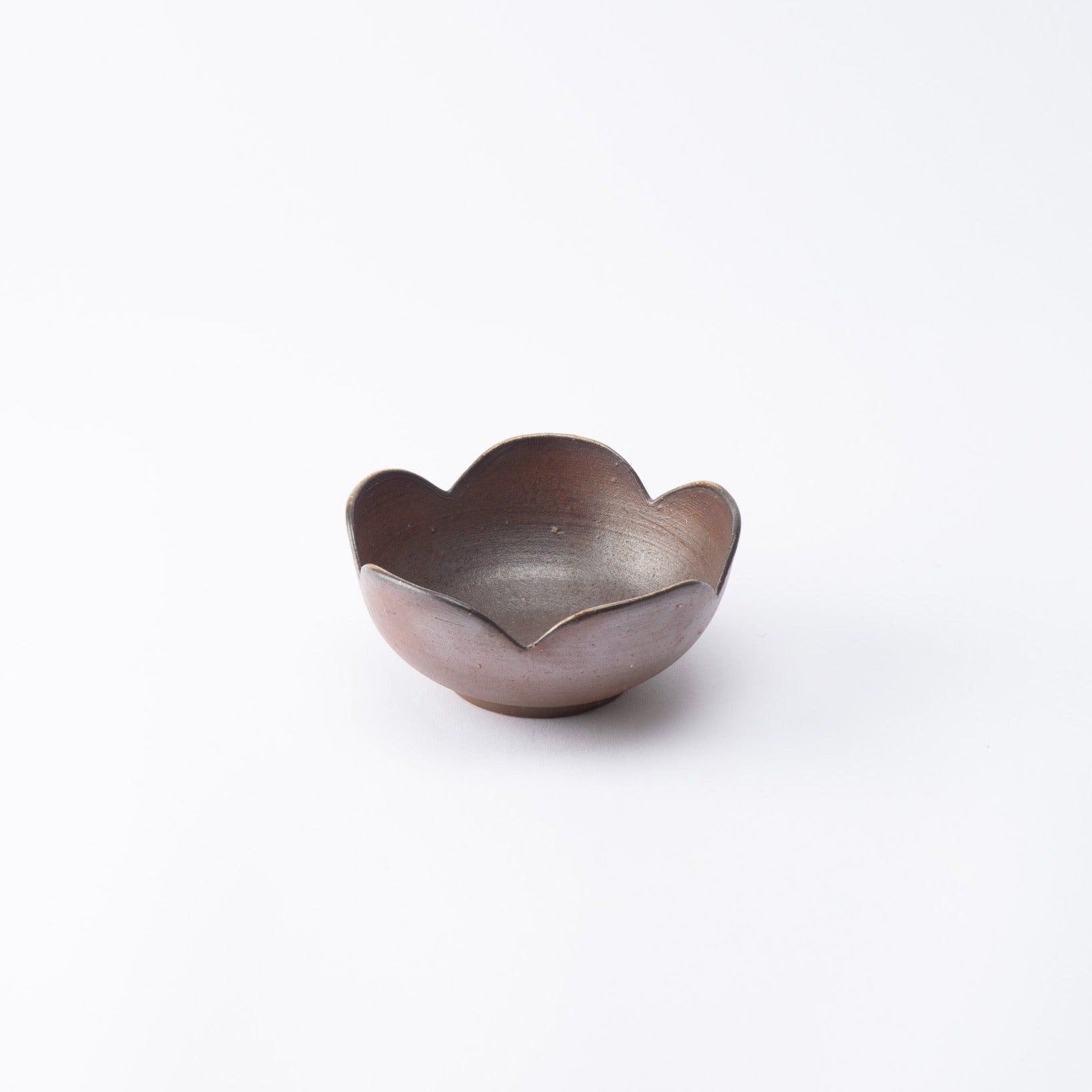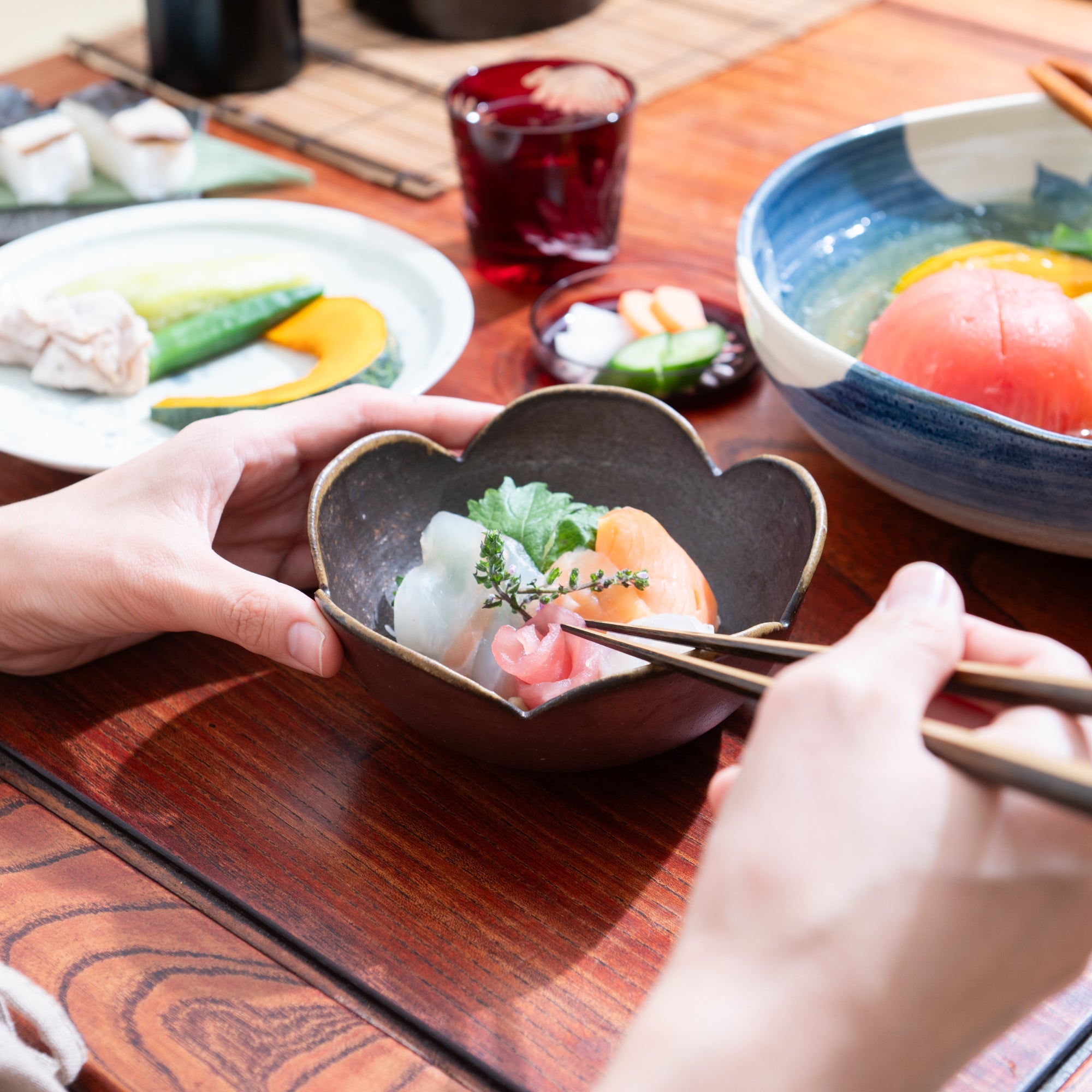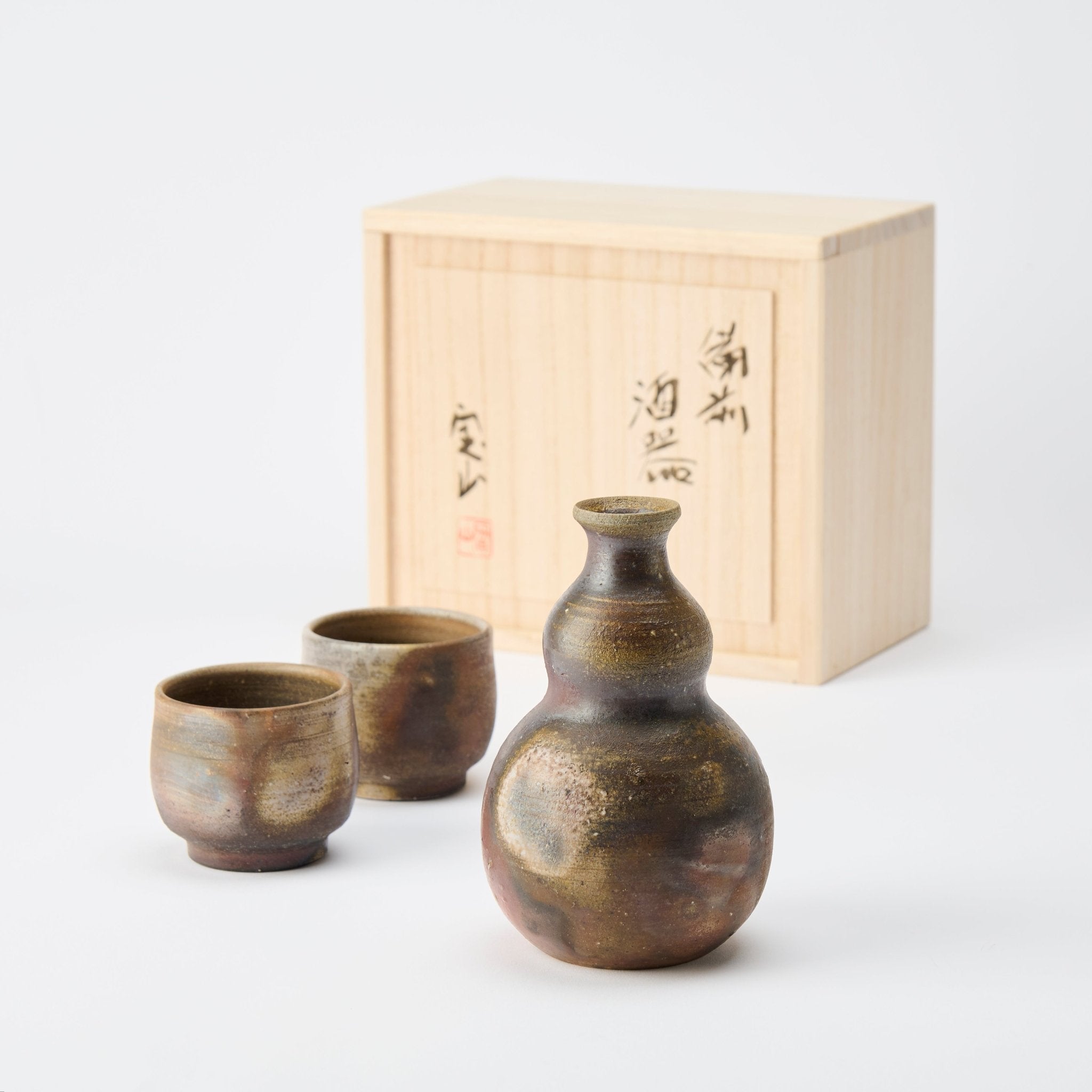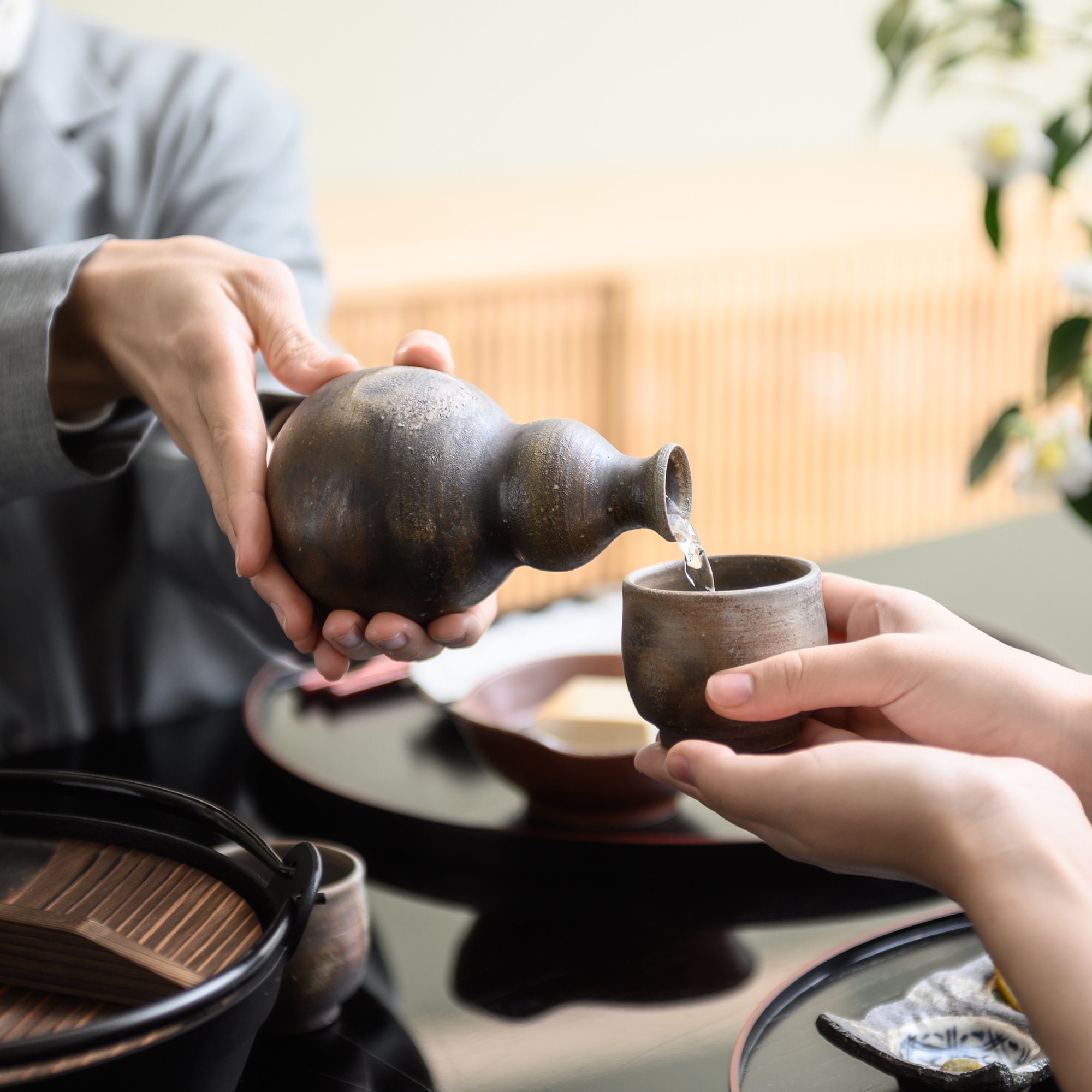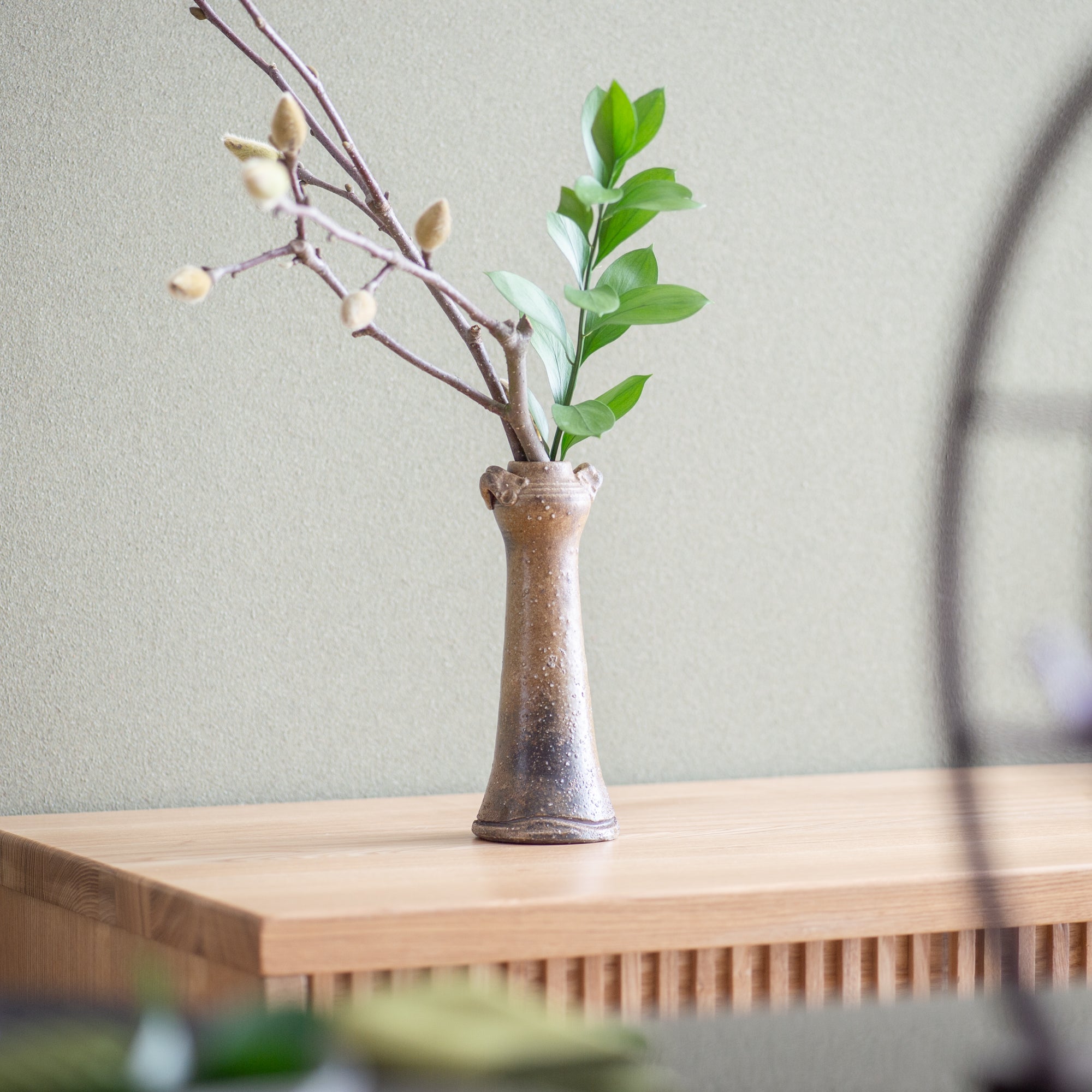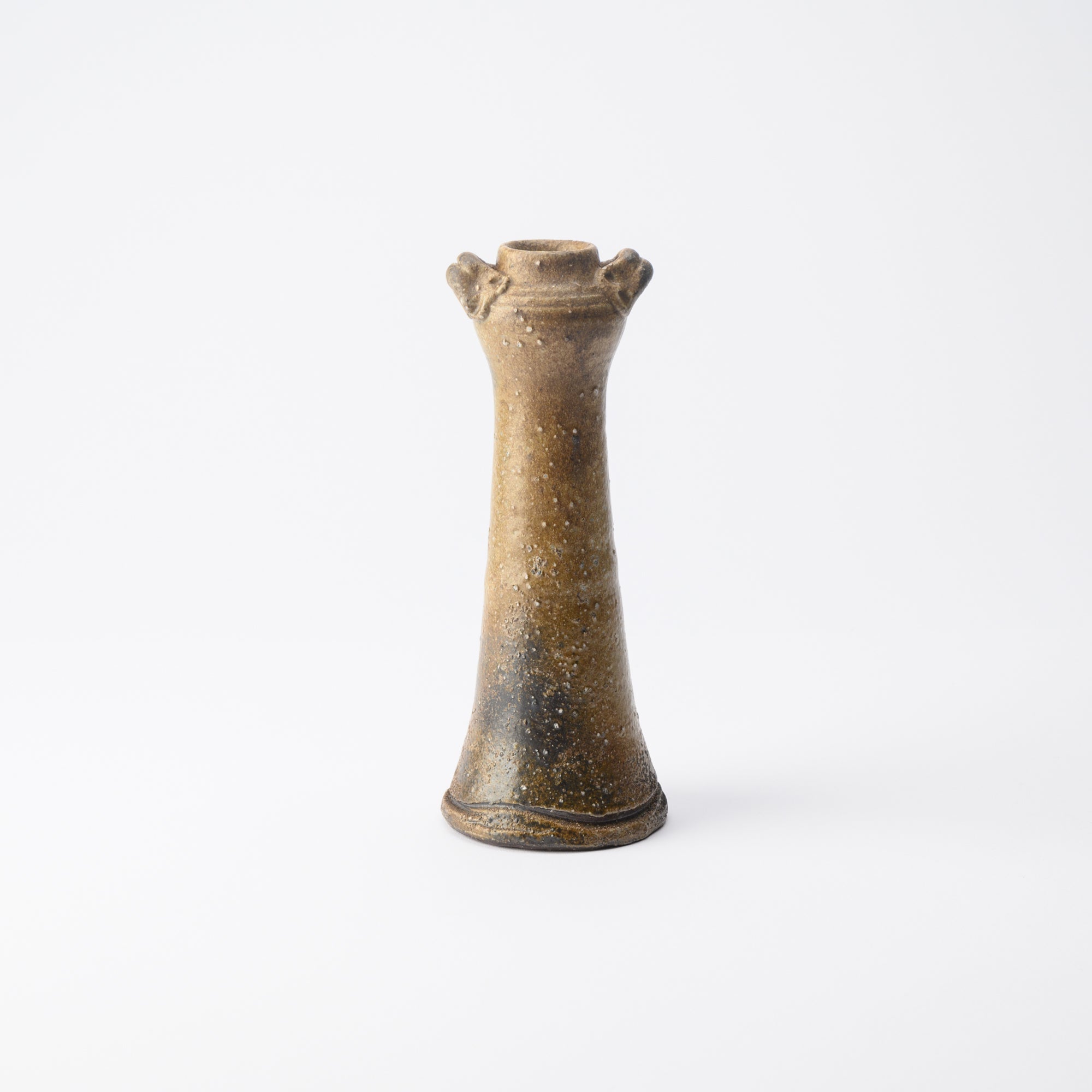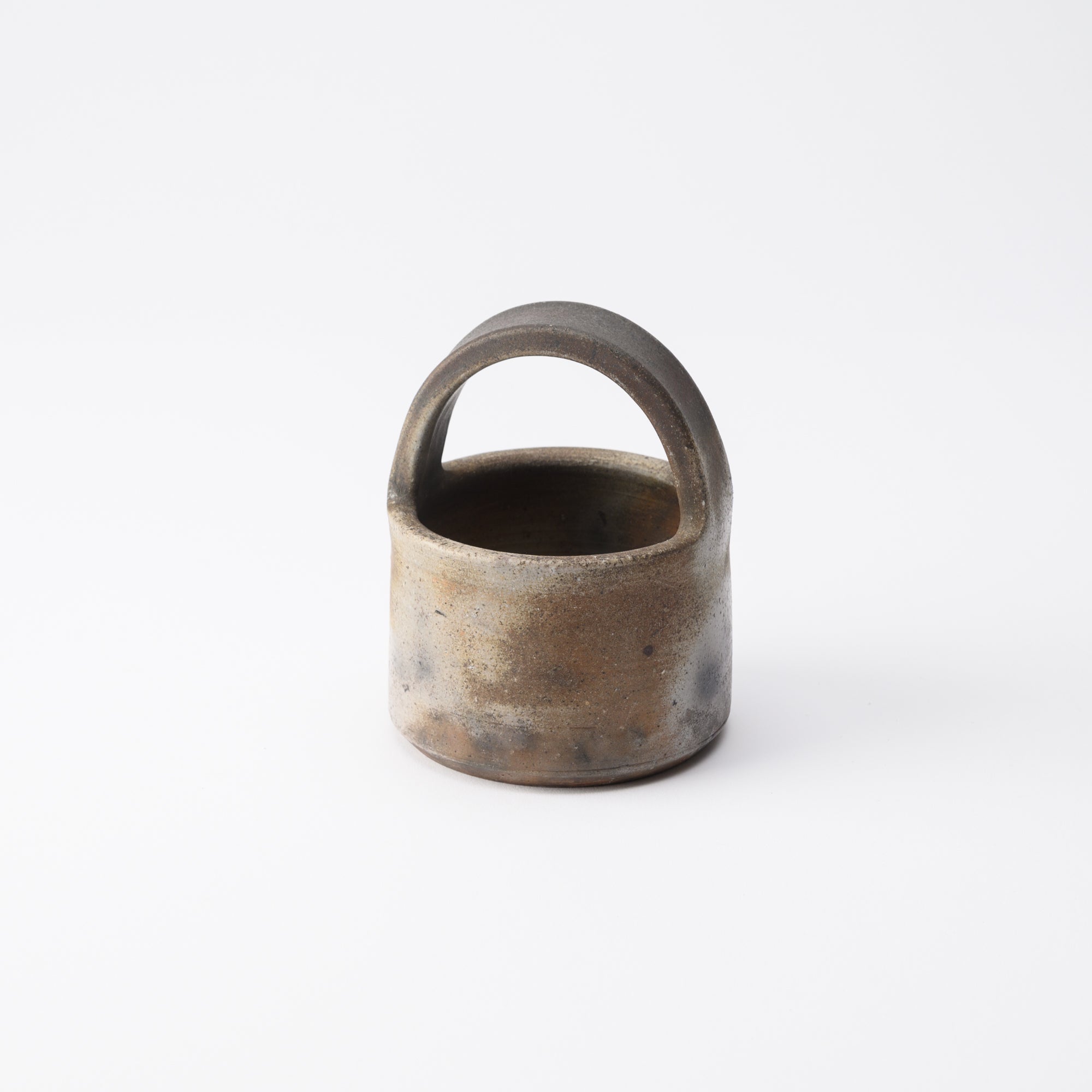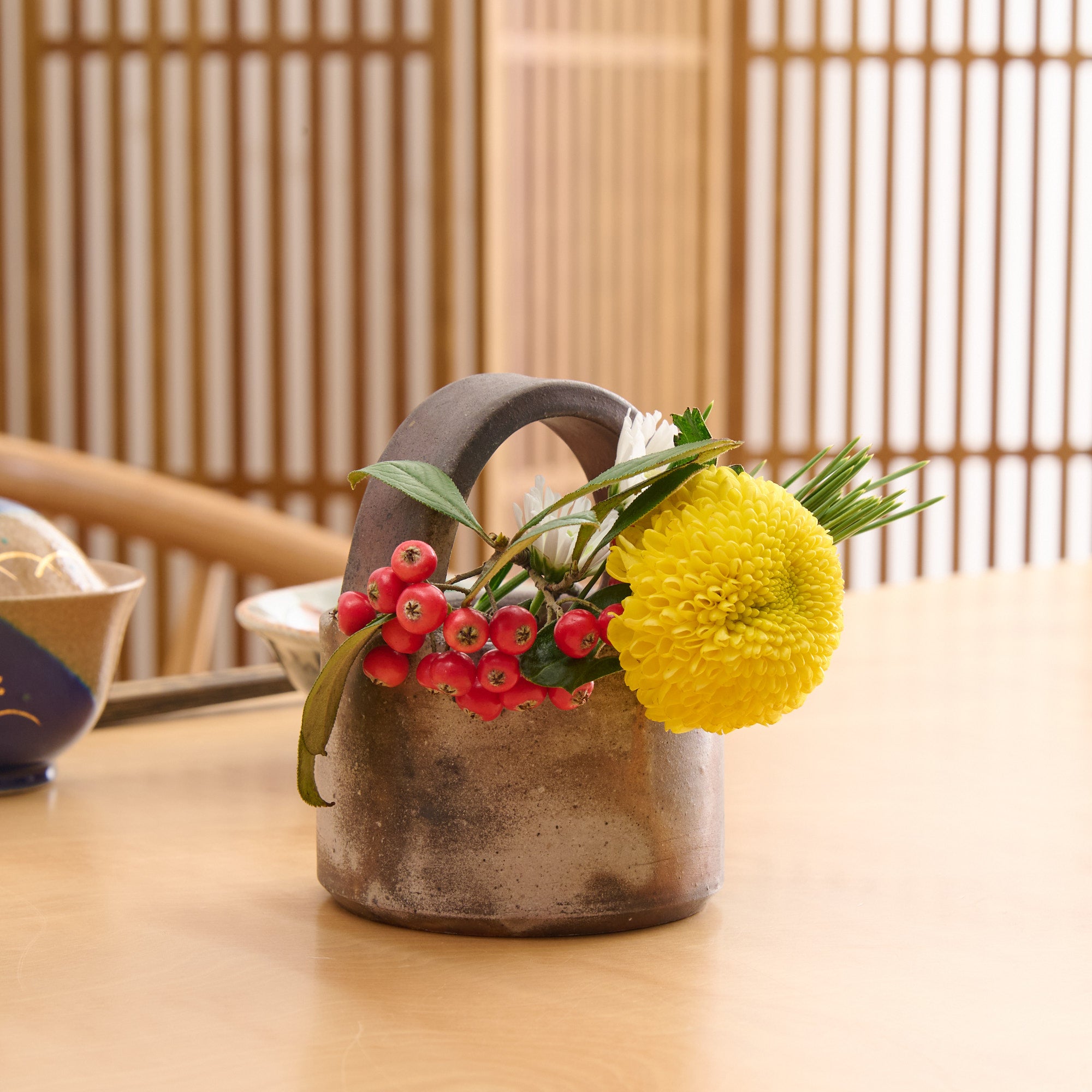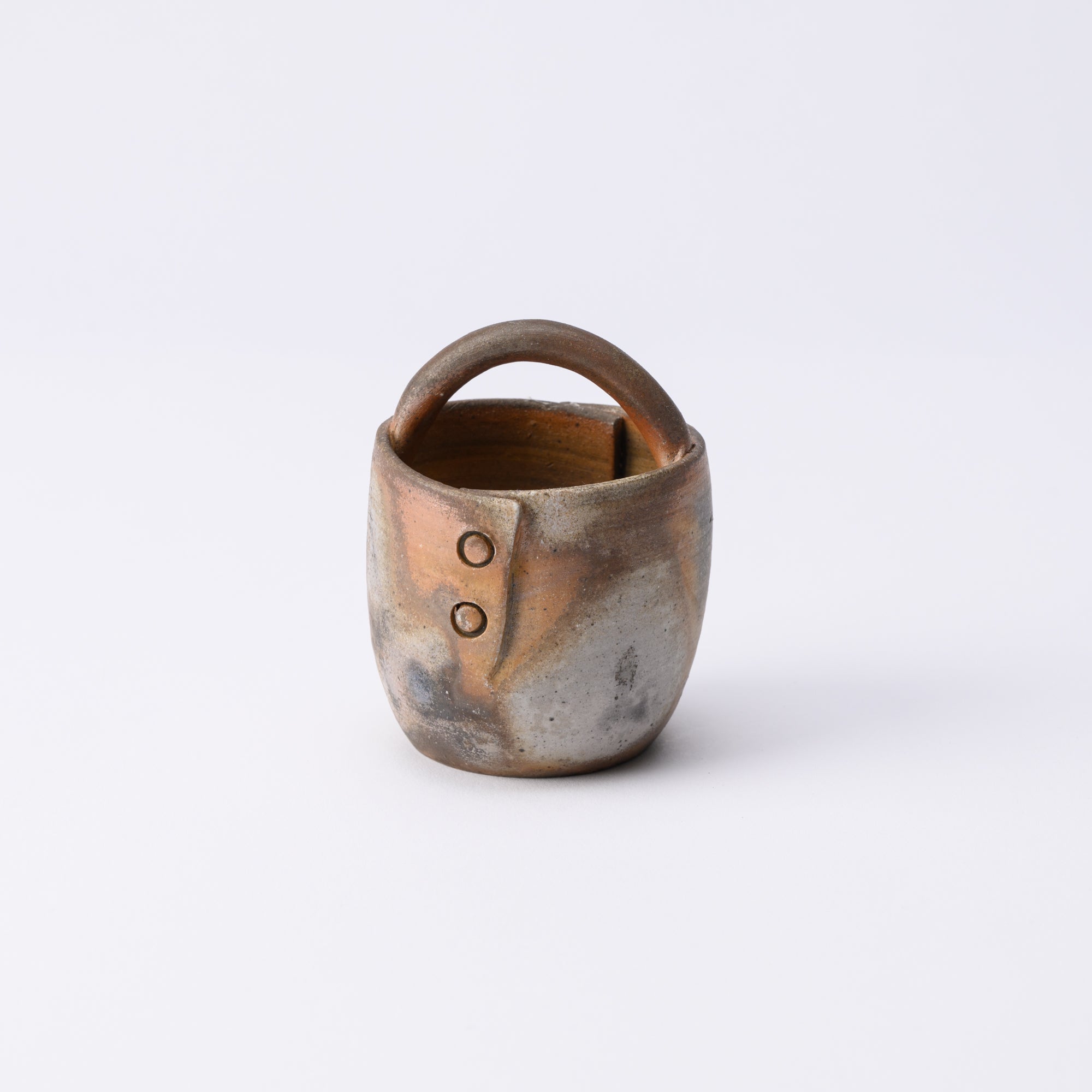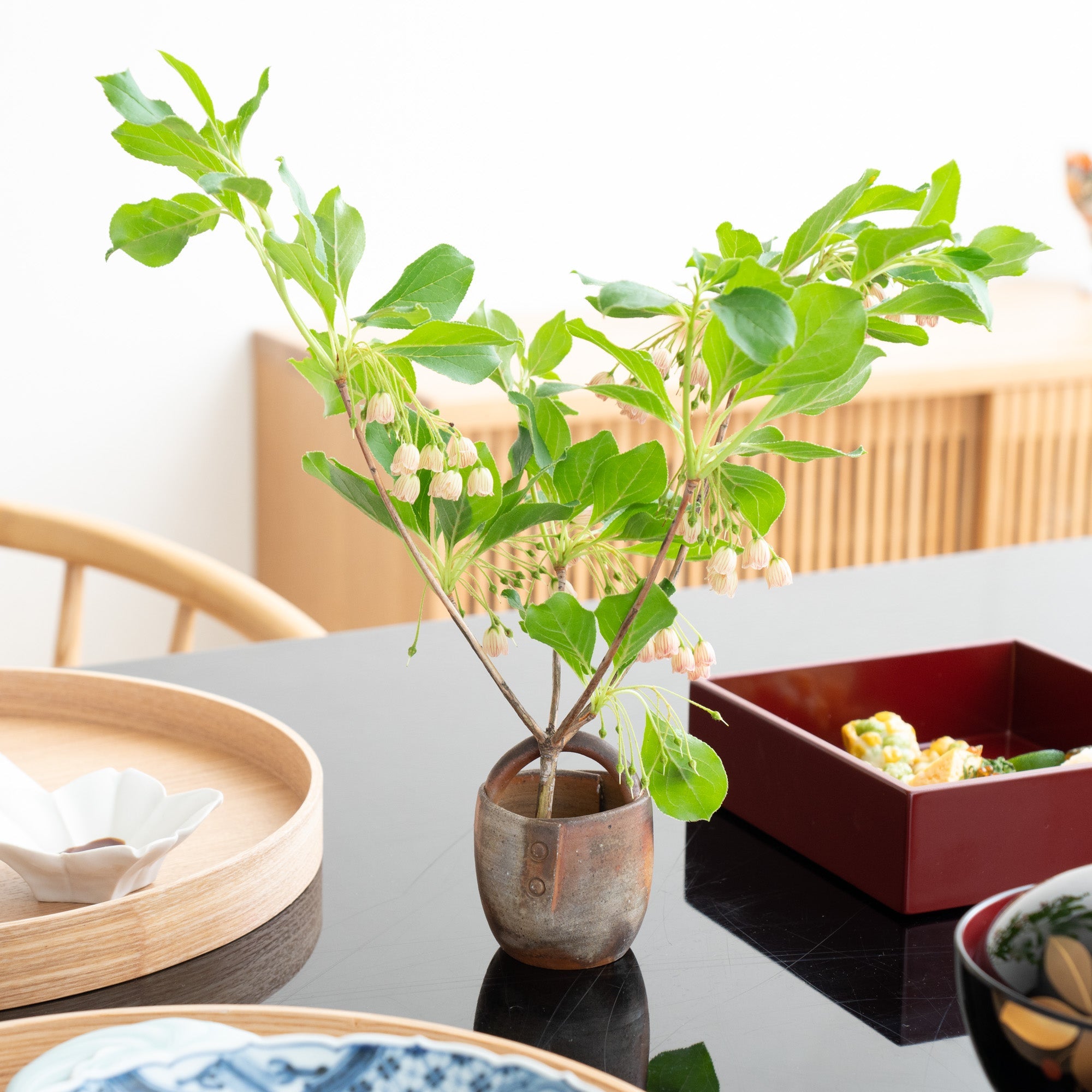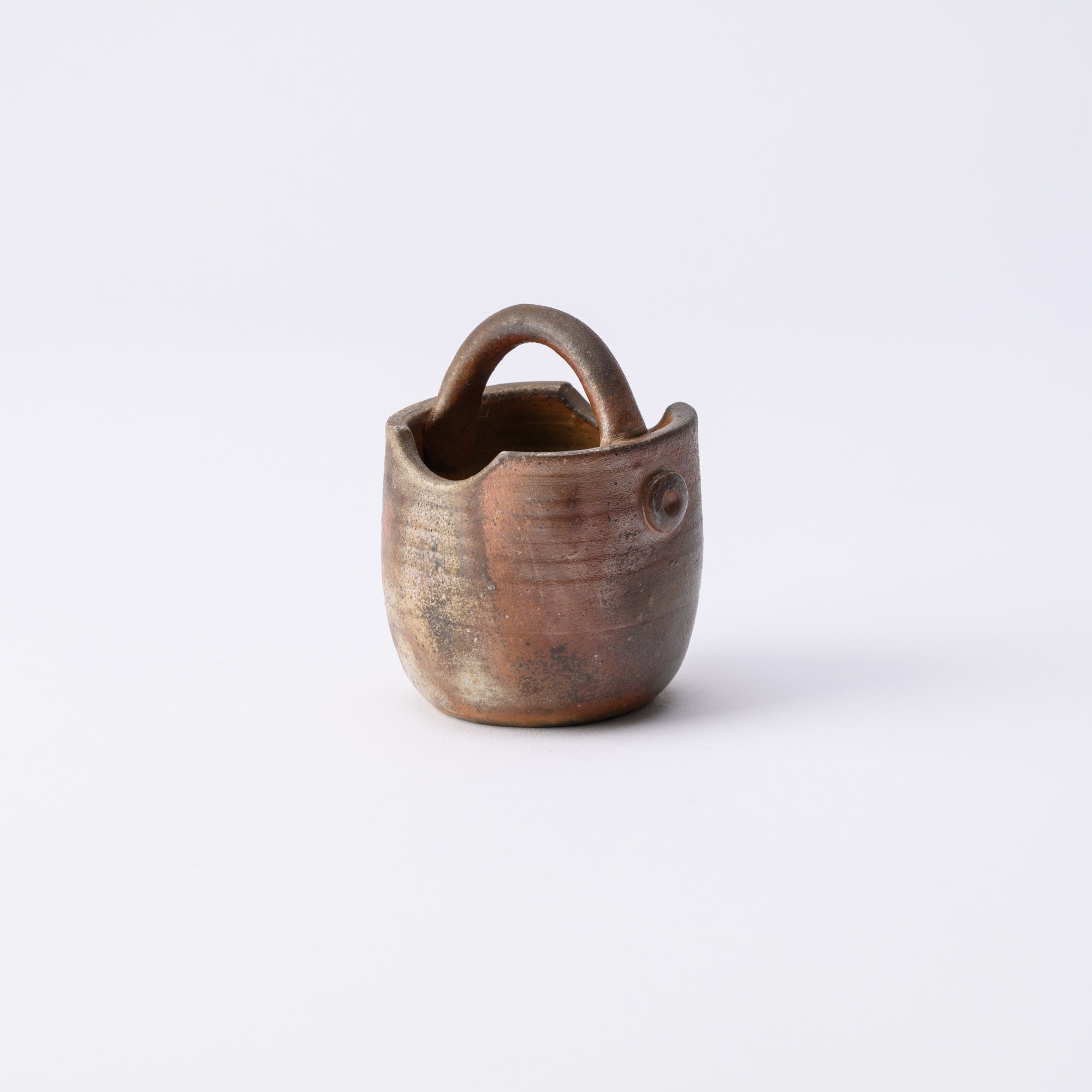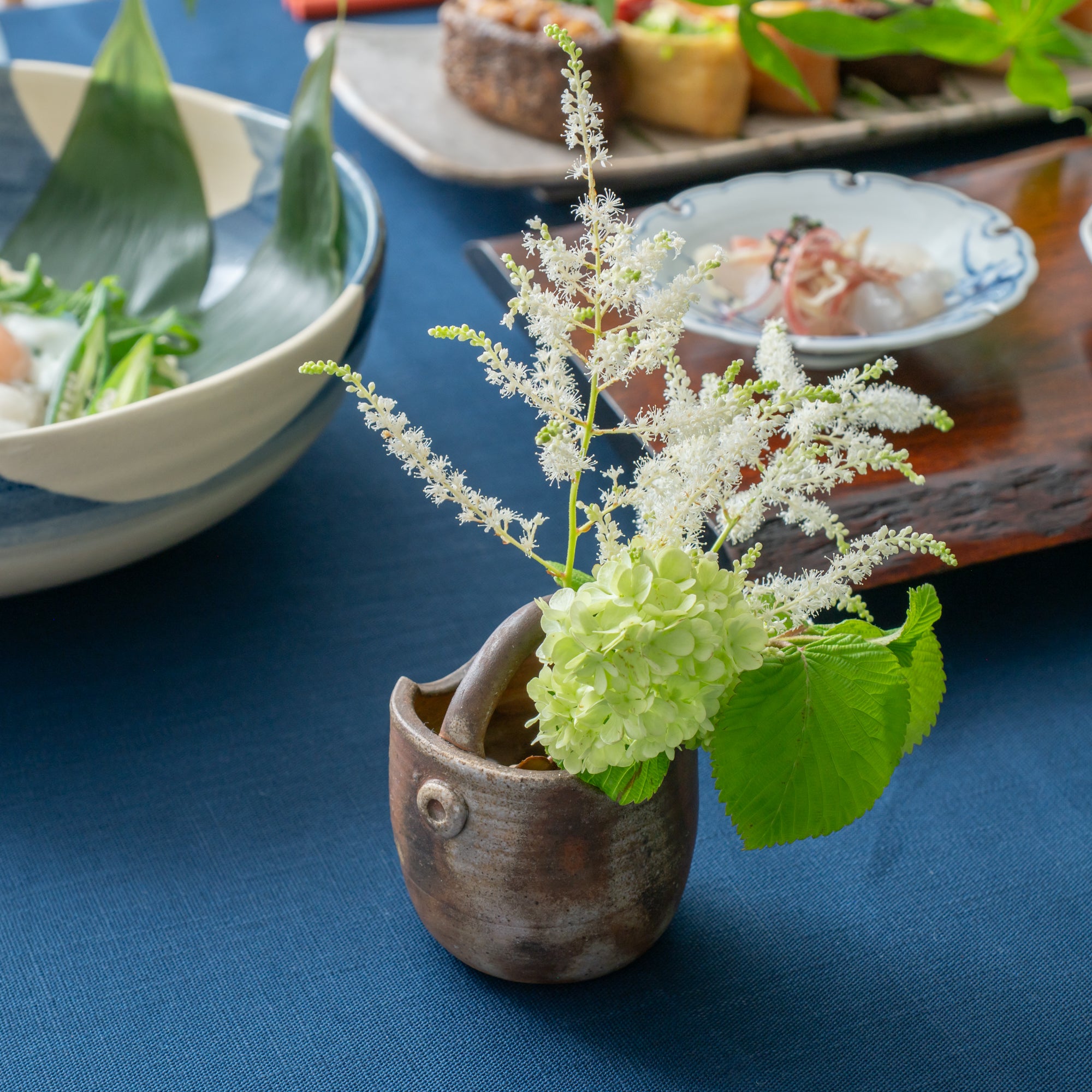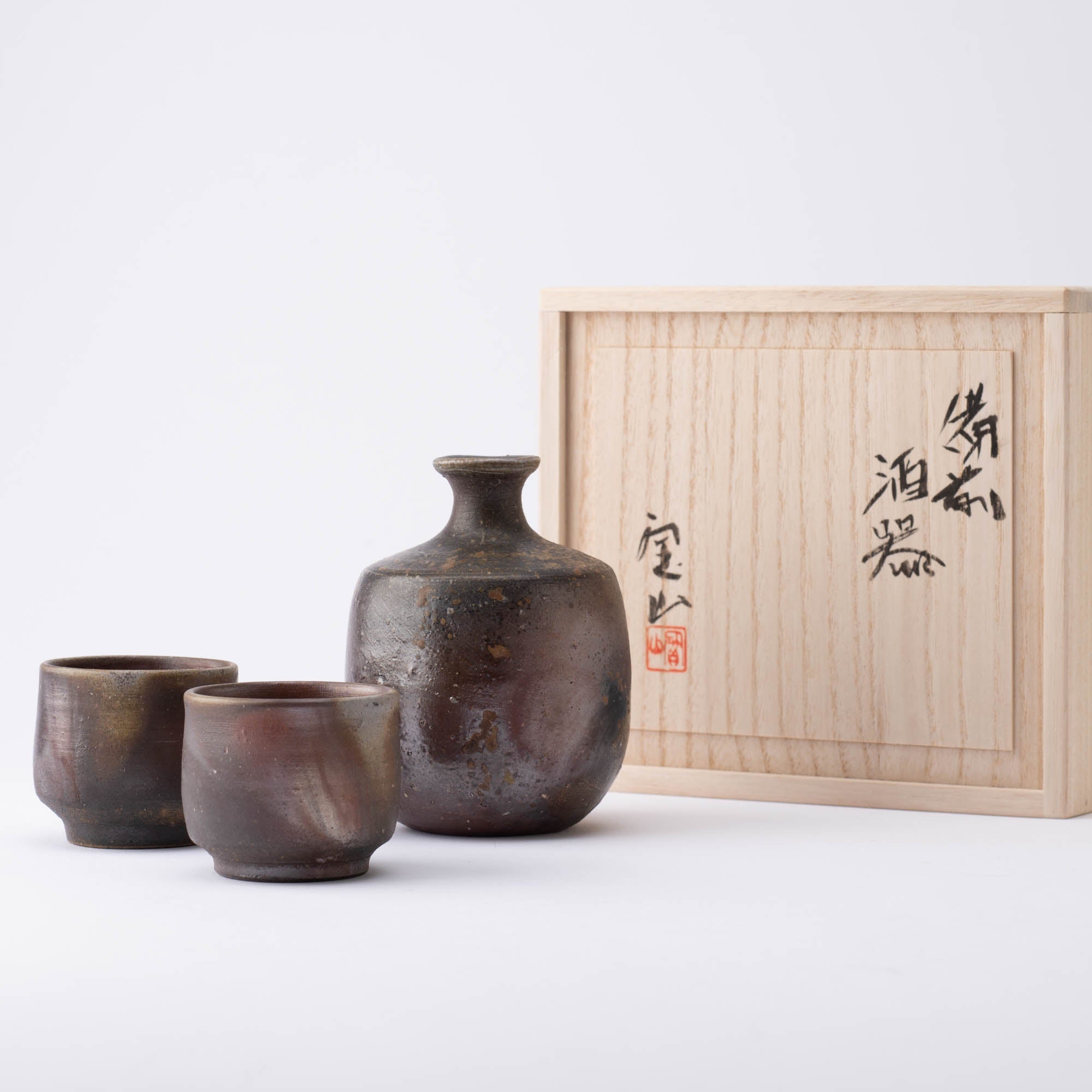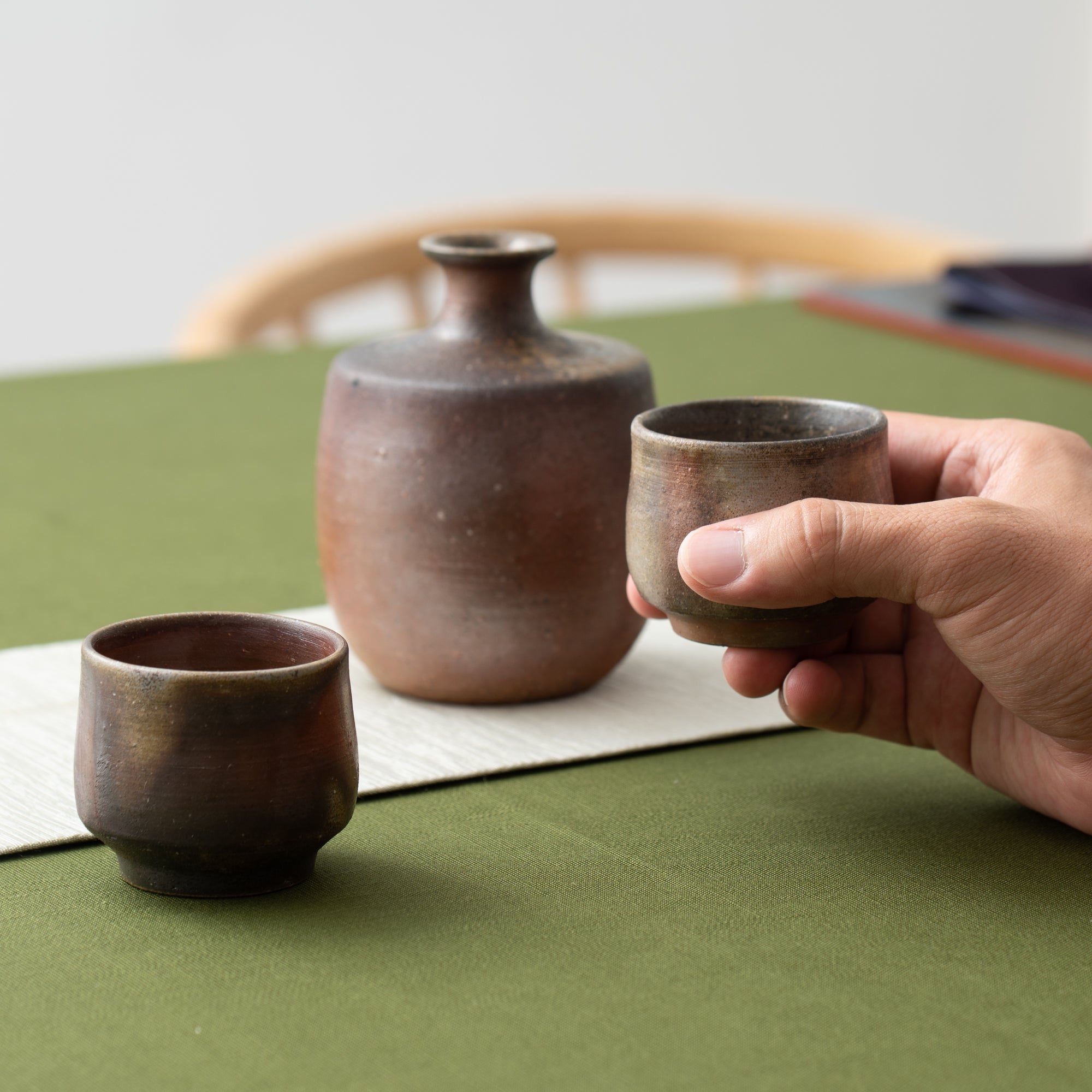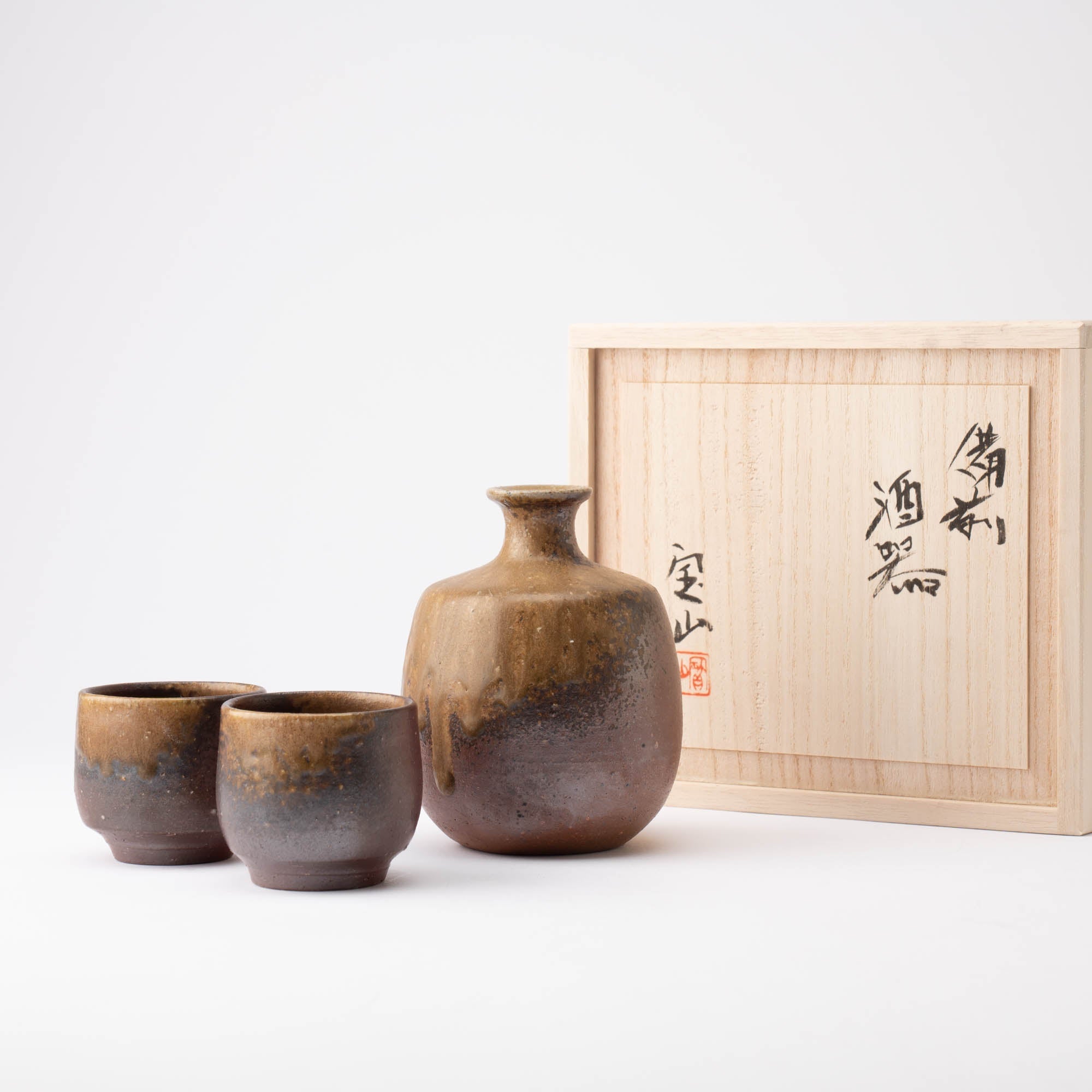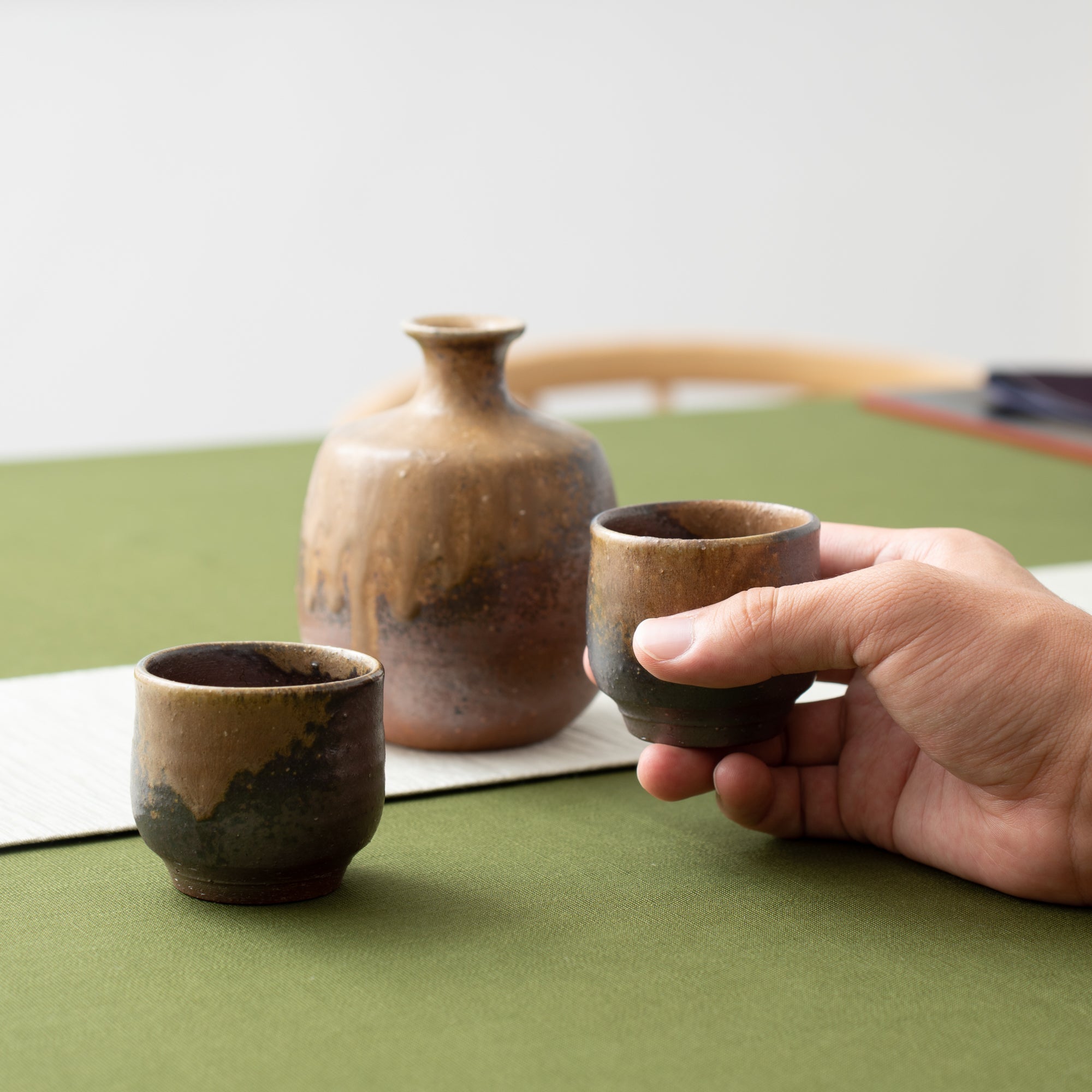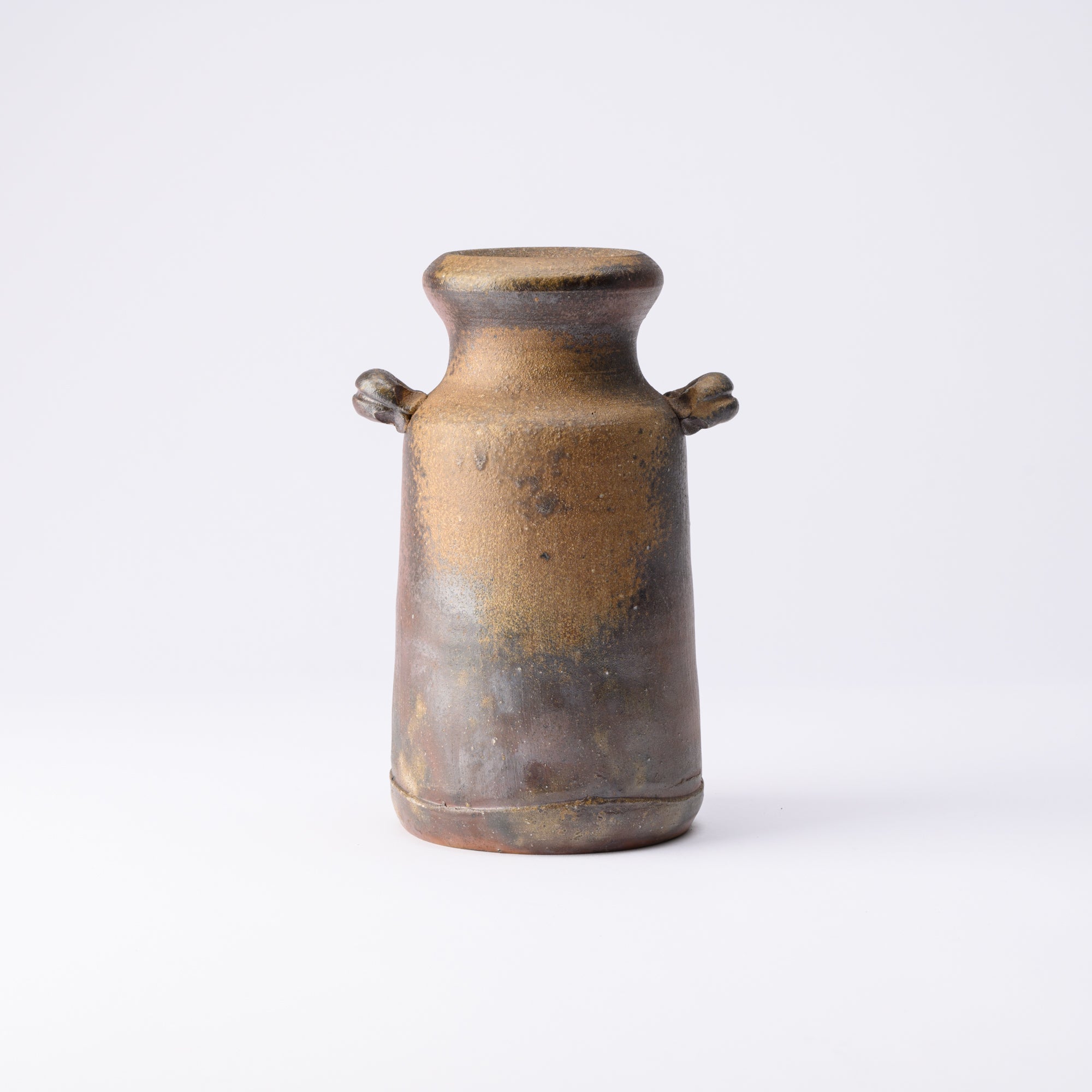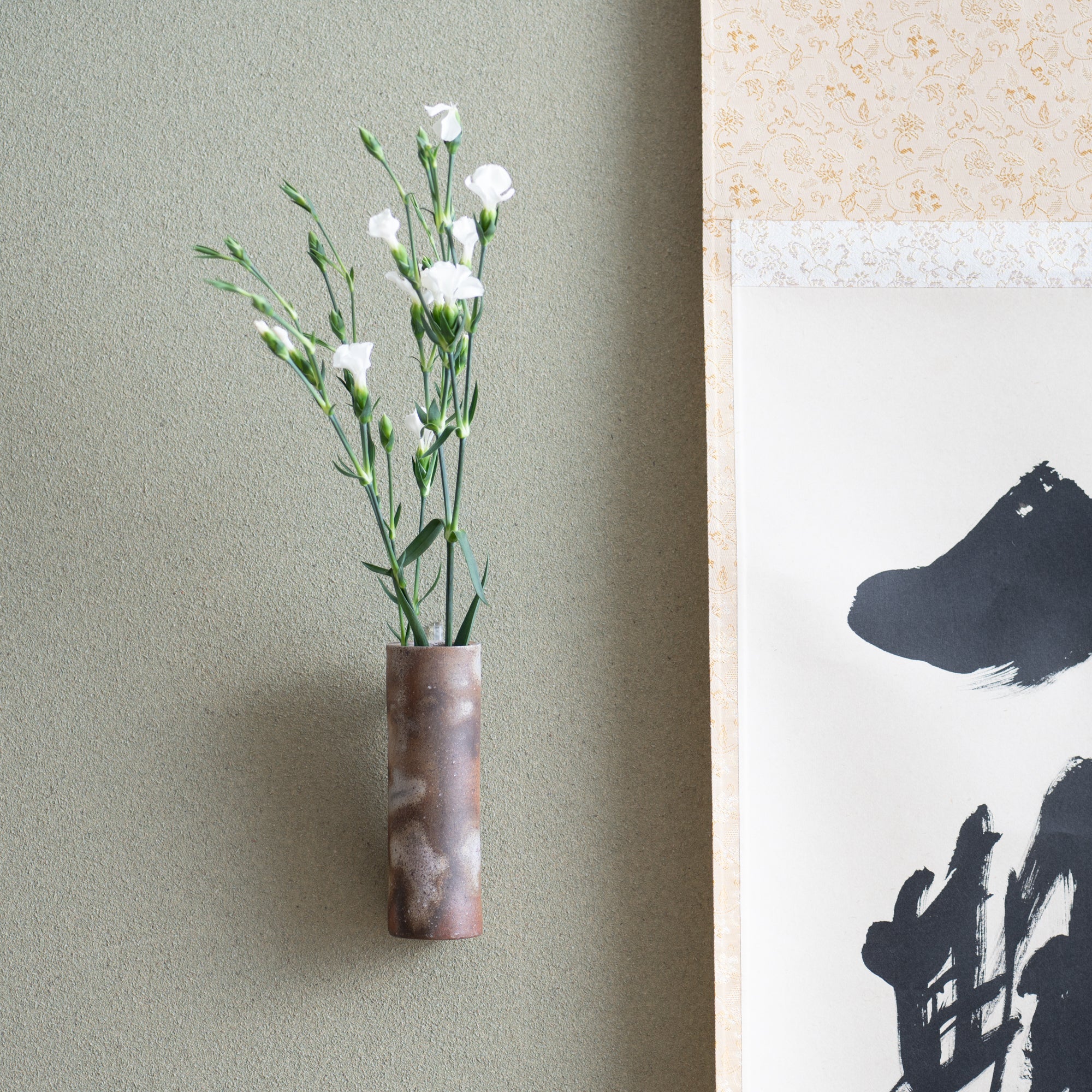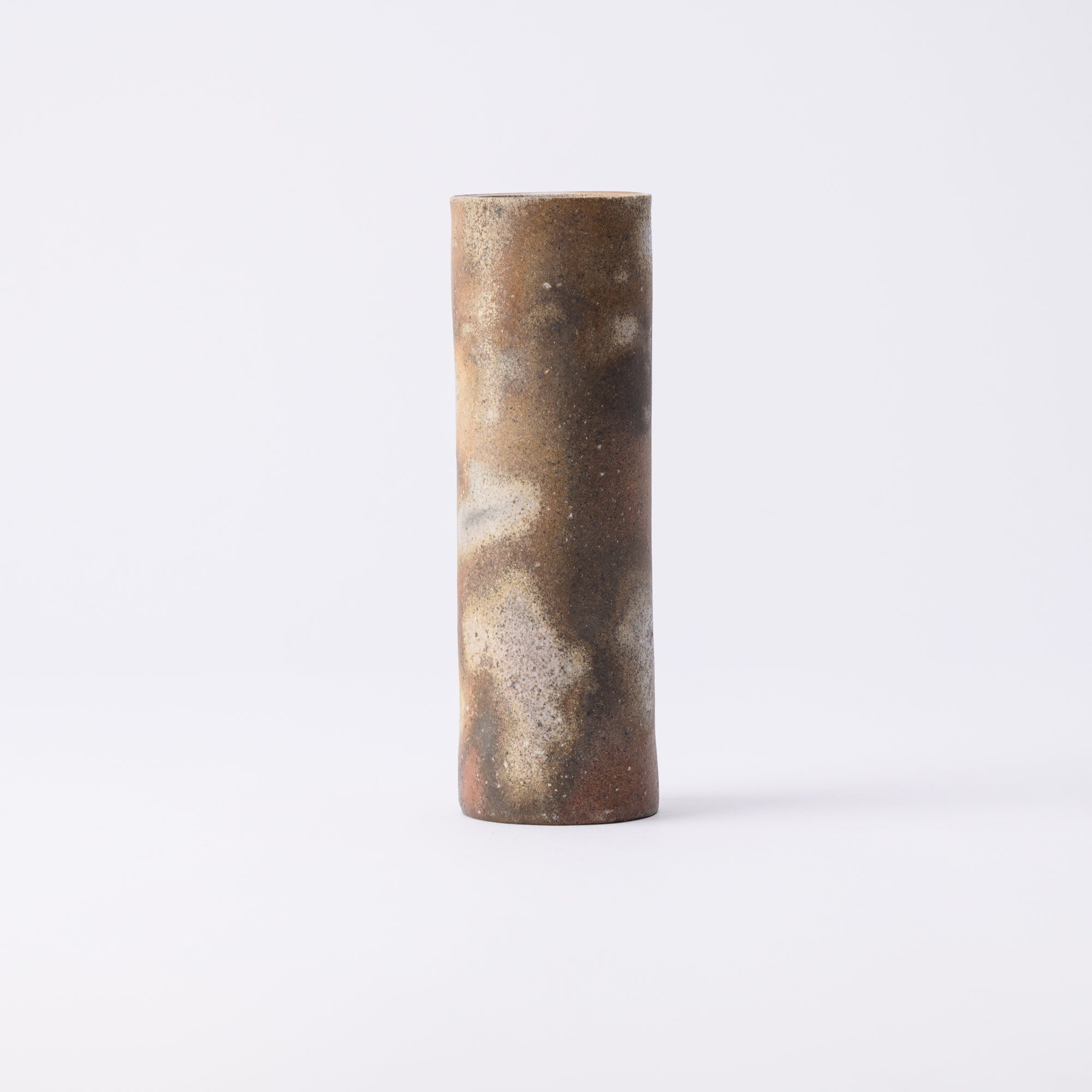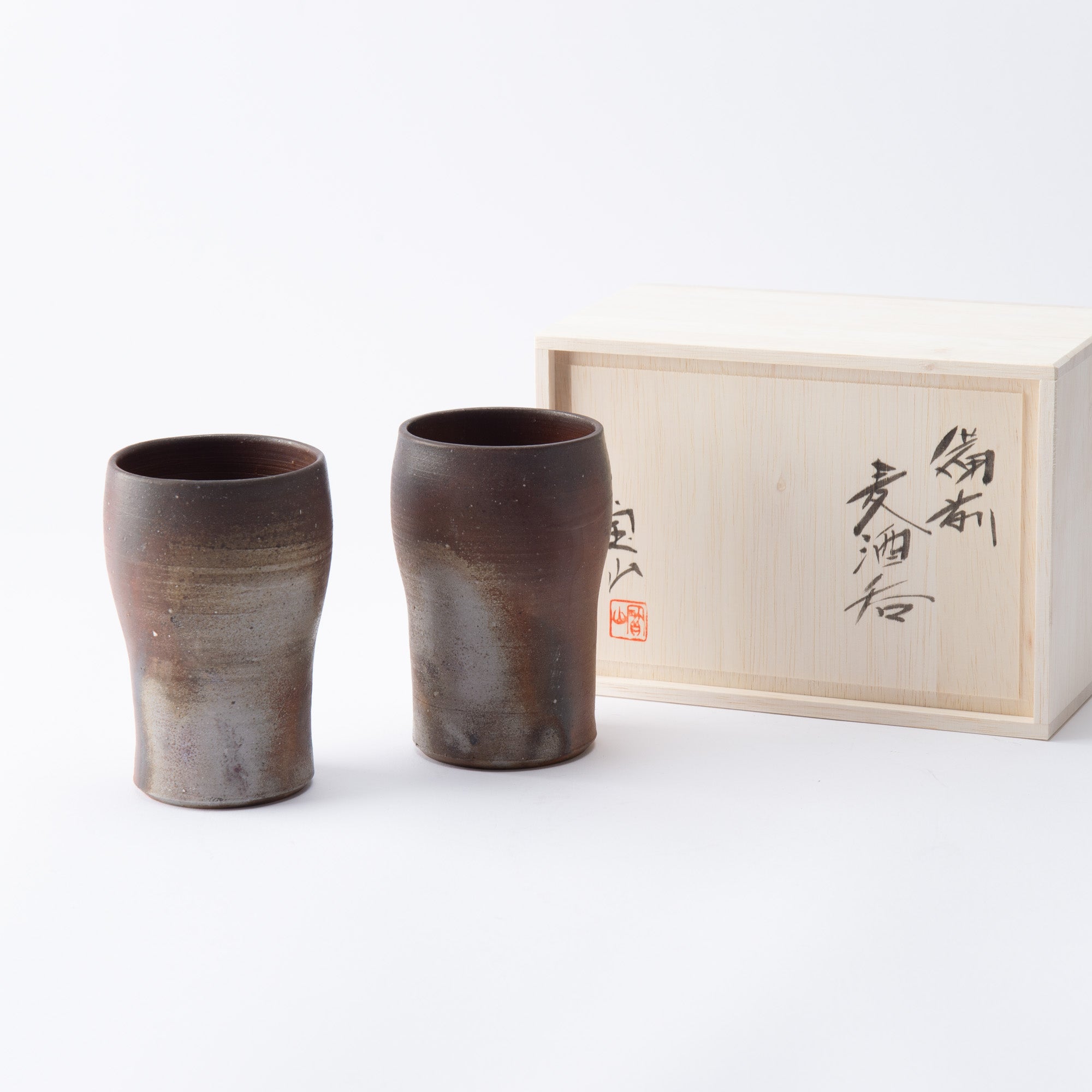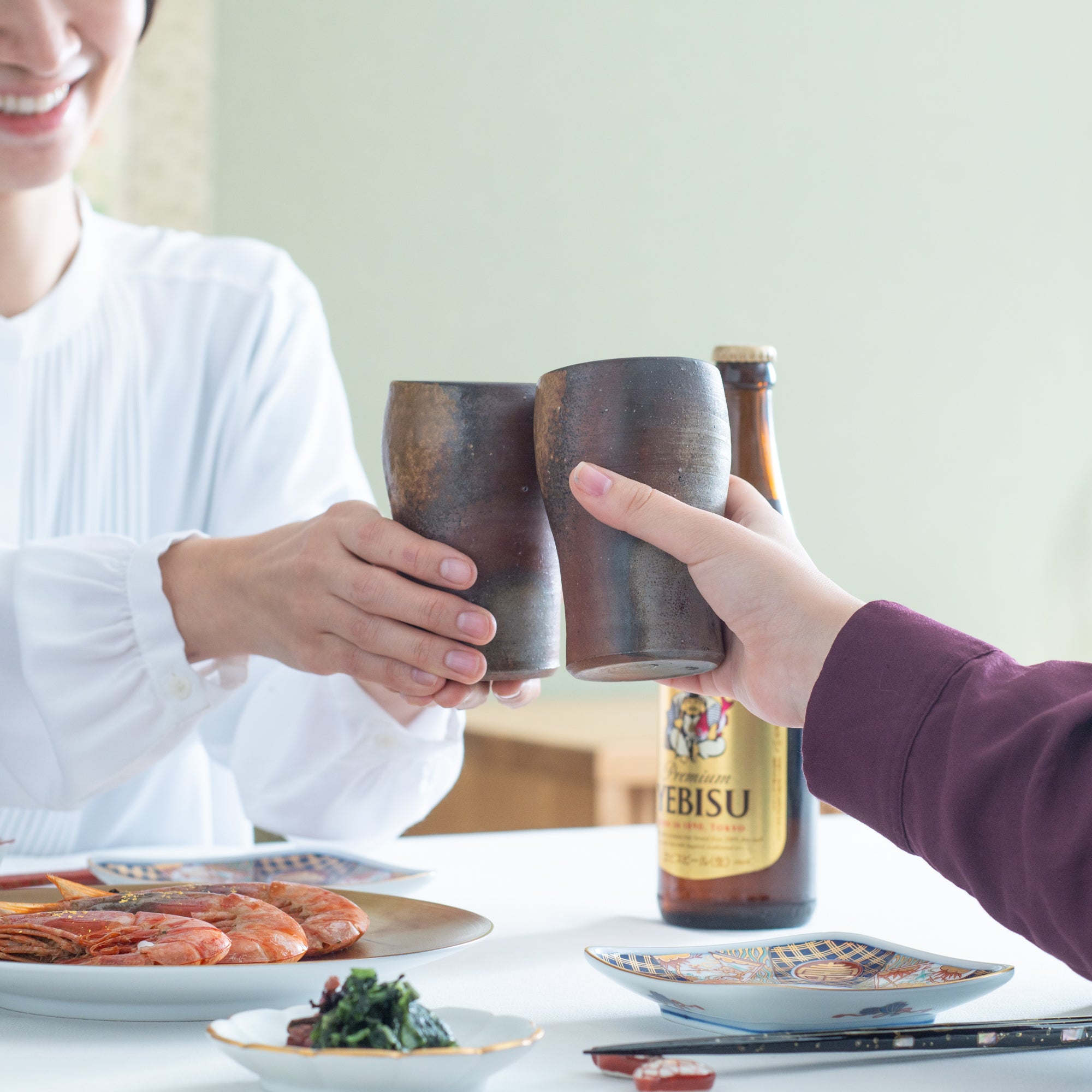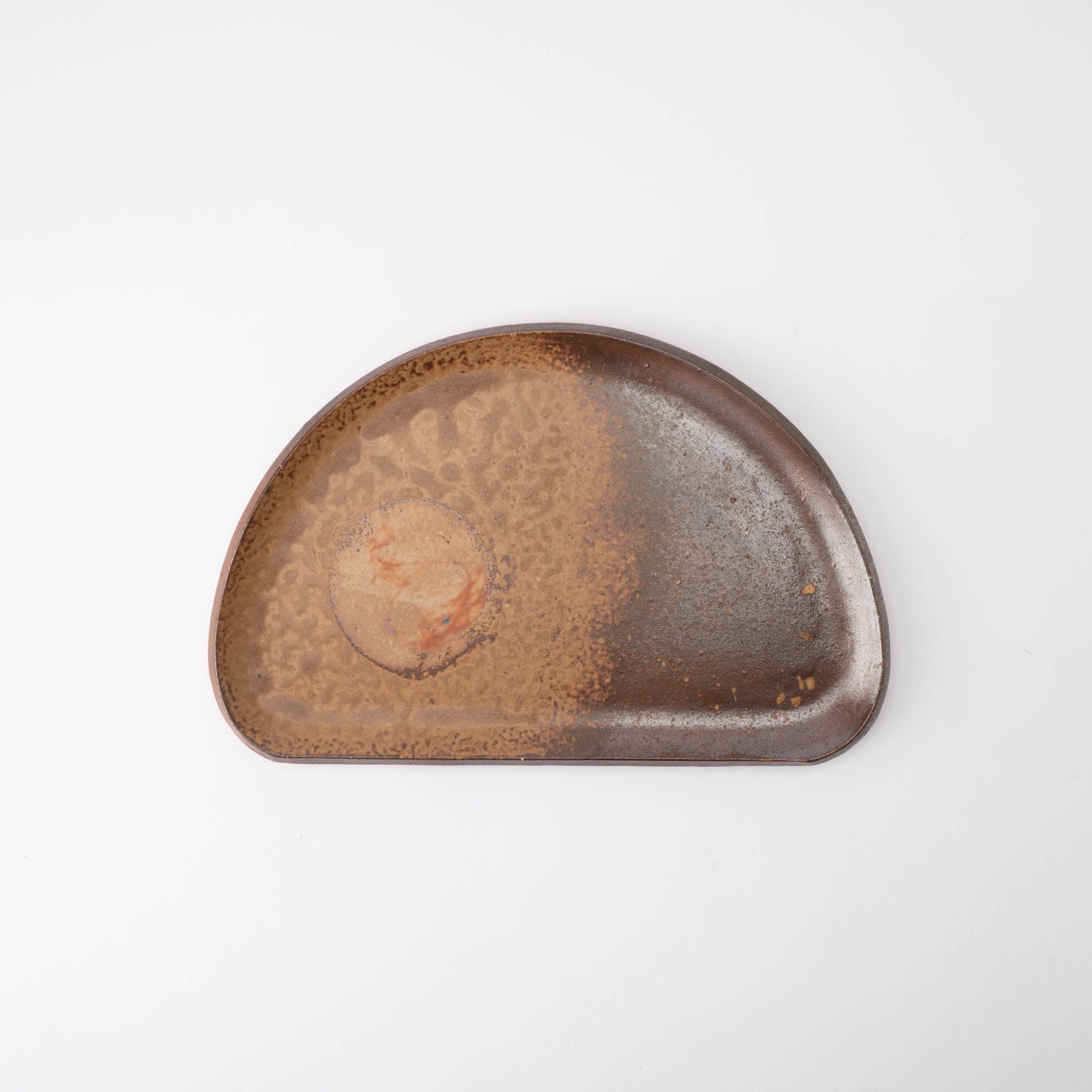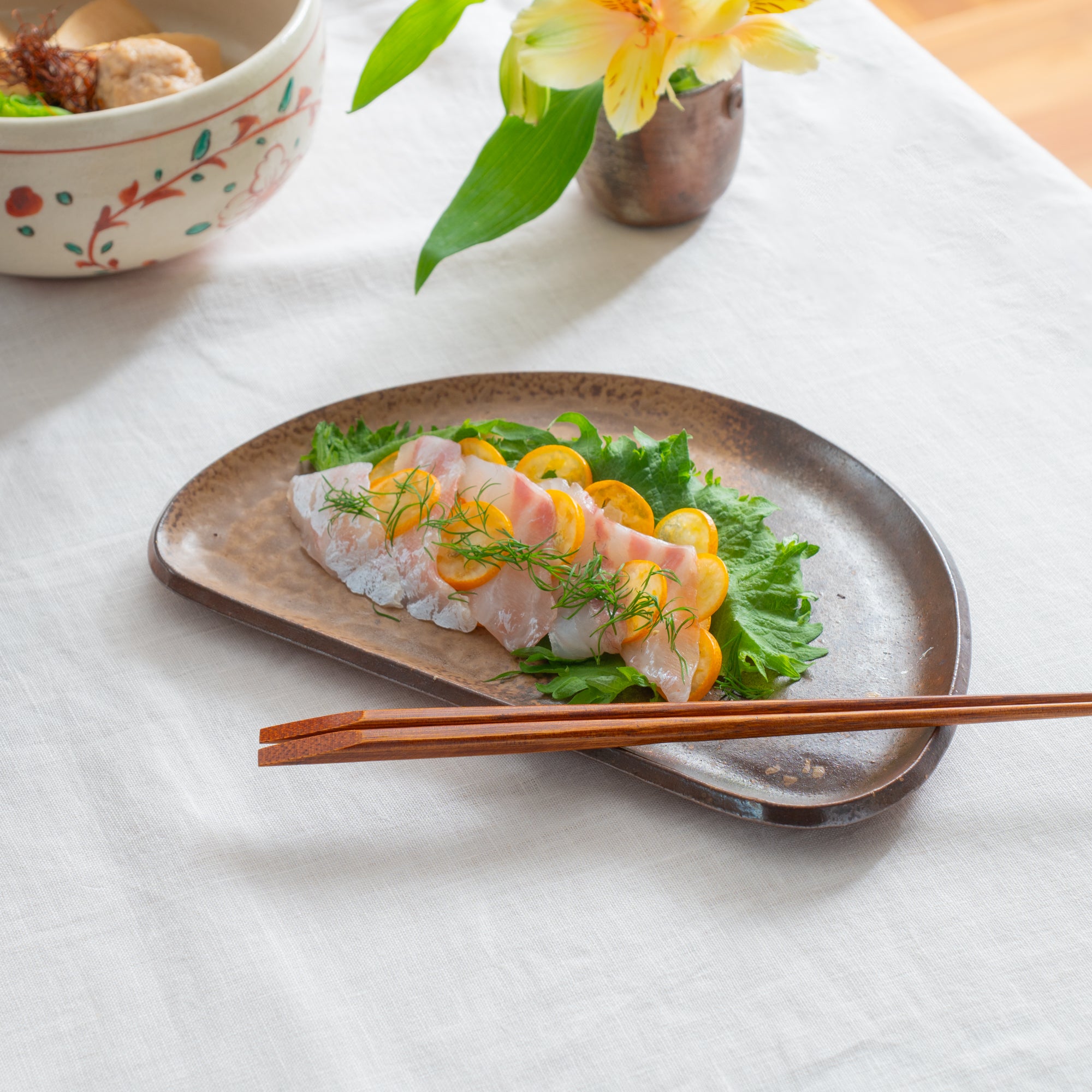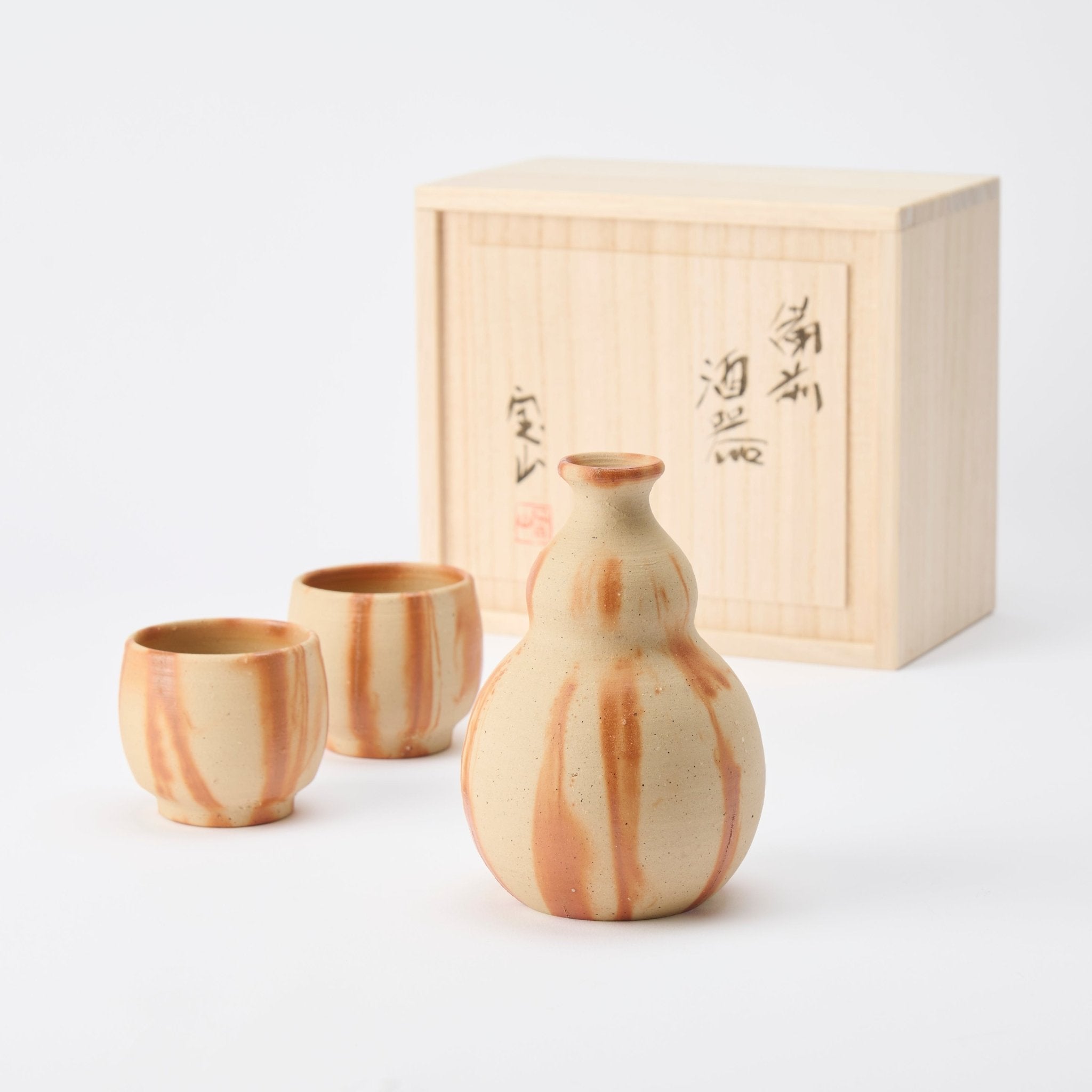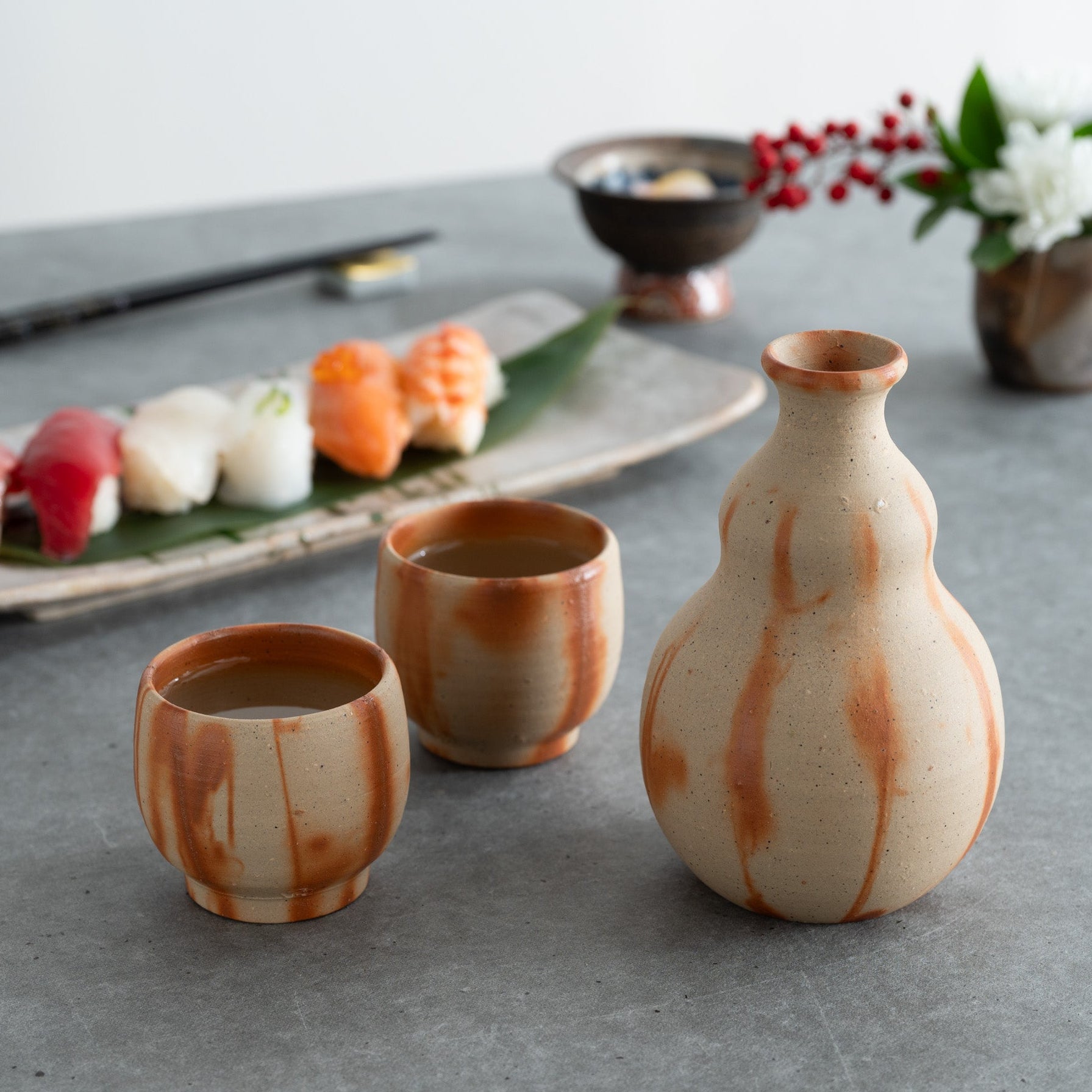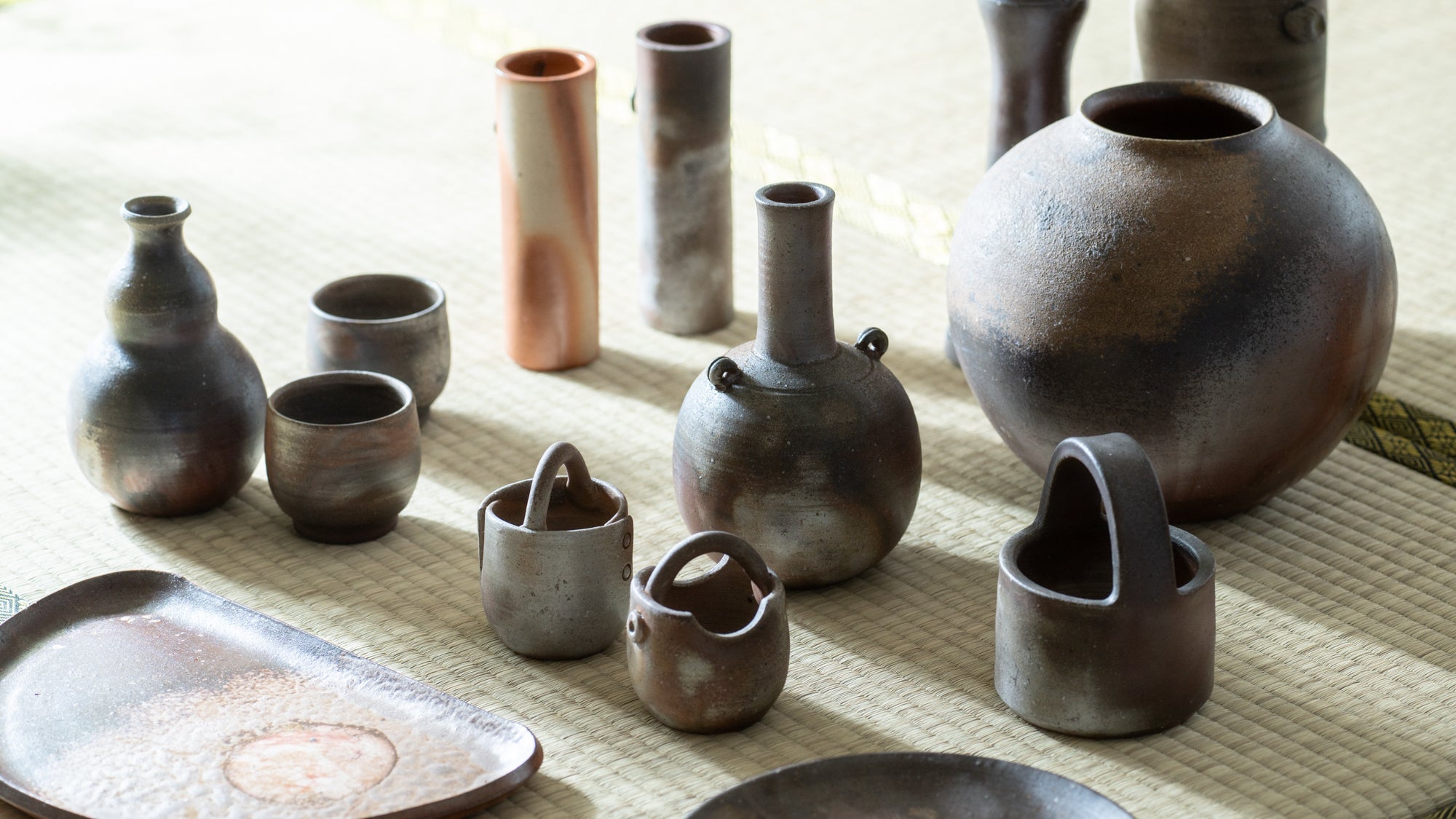
Hozan Kiln
Hozan Kiln is a long-established Bizen ware kiln. Located in Imbe, Bizen City, the hometown of Bizen ware, Hozan Kiln is directly descended from the Six Families of Bizen ware potters. For centuries, it has continuously produced masterpieces of tea ceremony utensils, sake cups, and art pieces. The oldest-known piece to bear the fan-shaped ceramic stamp, or brand mark, the kiln still uses today is a large jar dating to the 16th century.
Bizen ware has been shaped over more than 1,000 years. Hailing from the small village of Bizen—site of one of the six ancient Japanese kilns—its artists have been refining their techniques ever since. In Bizen ware, there were six families that had been under the protection of the shogunate government since the 17th century. Hozan Kiln is one of them and continues to this day as a legitimate successor of Bizen ware.
Bizen ware features a unique style of stoneware called yakishime, unglazed ceramics fired at high temperatures for more than ten days, which results in artistic patterns created by the fire of the kiln. As a traditional Bizen ware creator, Hozan Kiln is committed to creating distinctive and vibrant pieces that incorporate new modern sensibilities while maintaining the traditional beauty of Bizen ware.
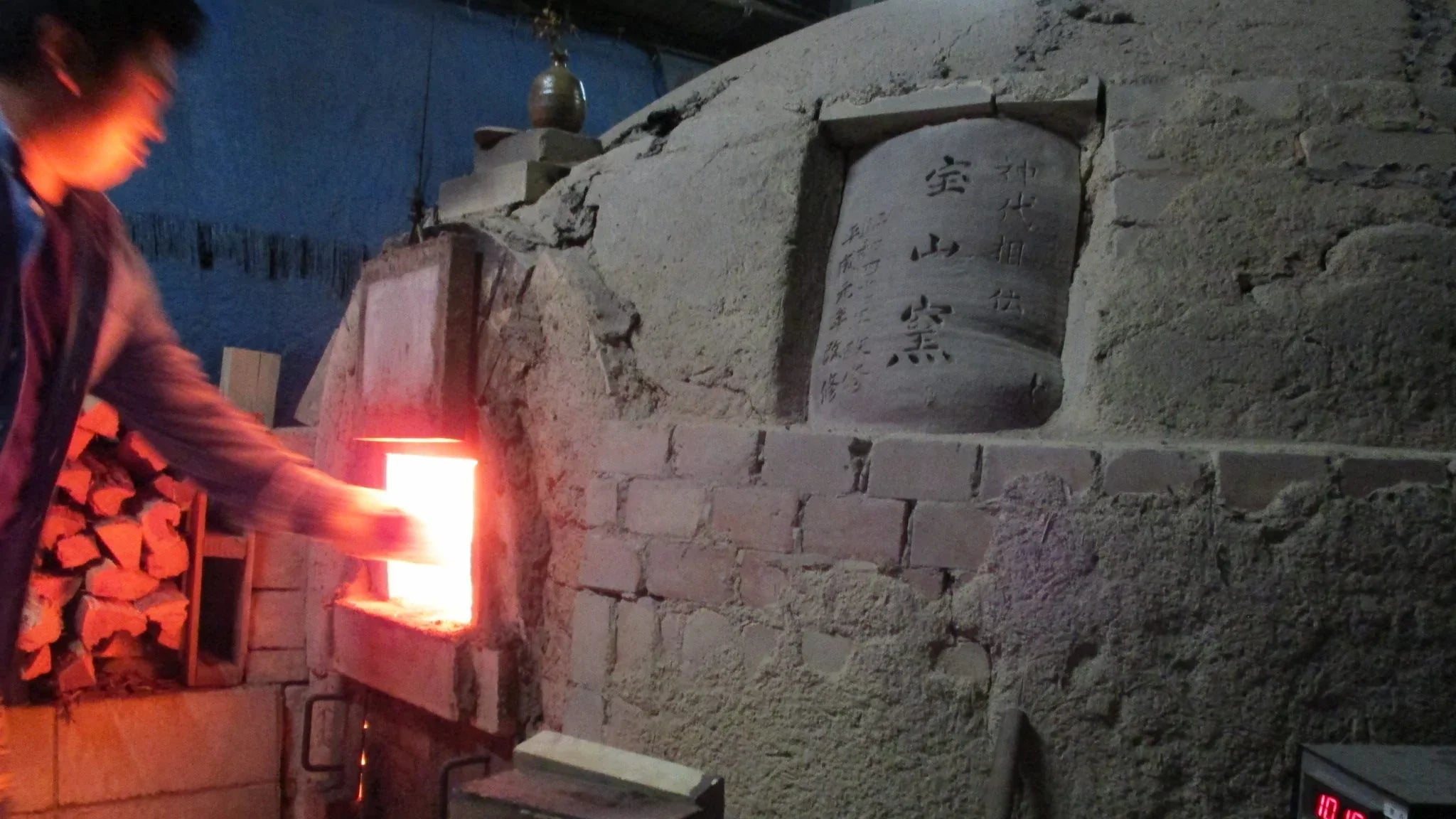
Toshiaki Mori
Toshiaki Mori is a 19th generation ceramic artist at Hozan Kiln. He not only learned ceramics techniques from his father, Yasushi, but also earned a bachelor's degree in cultural heritage studies, convinced of the importance of Bizen ware in Japanese culture.
He holds the belief that "Bizen ware is not a tradition for the artists, but a culture for the people" and emphasizes the cultural value of Bizen ware, which enriches people’s lives by embodying wabi-sabi, a traditional Japanese aesthetic that embraces the beauty in imperfection. Today, Toshiaki aims to spread Japanese culture to the world through Bizen ware, with a style that suits the tastes of modern people.
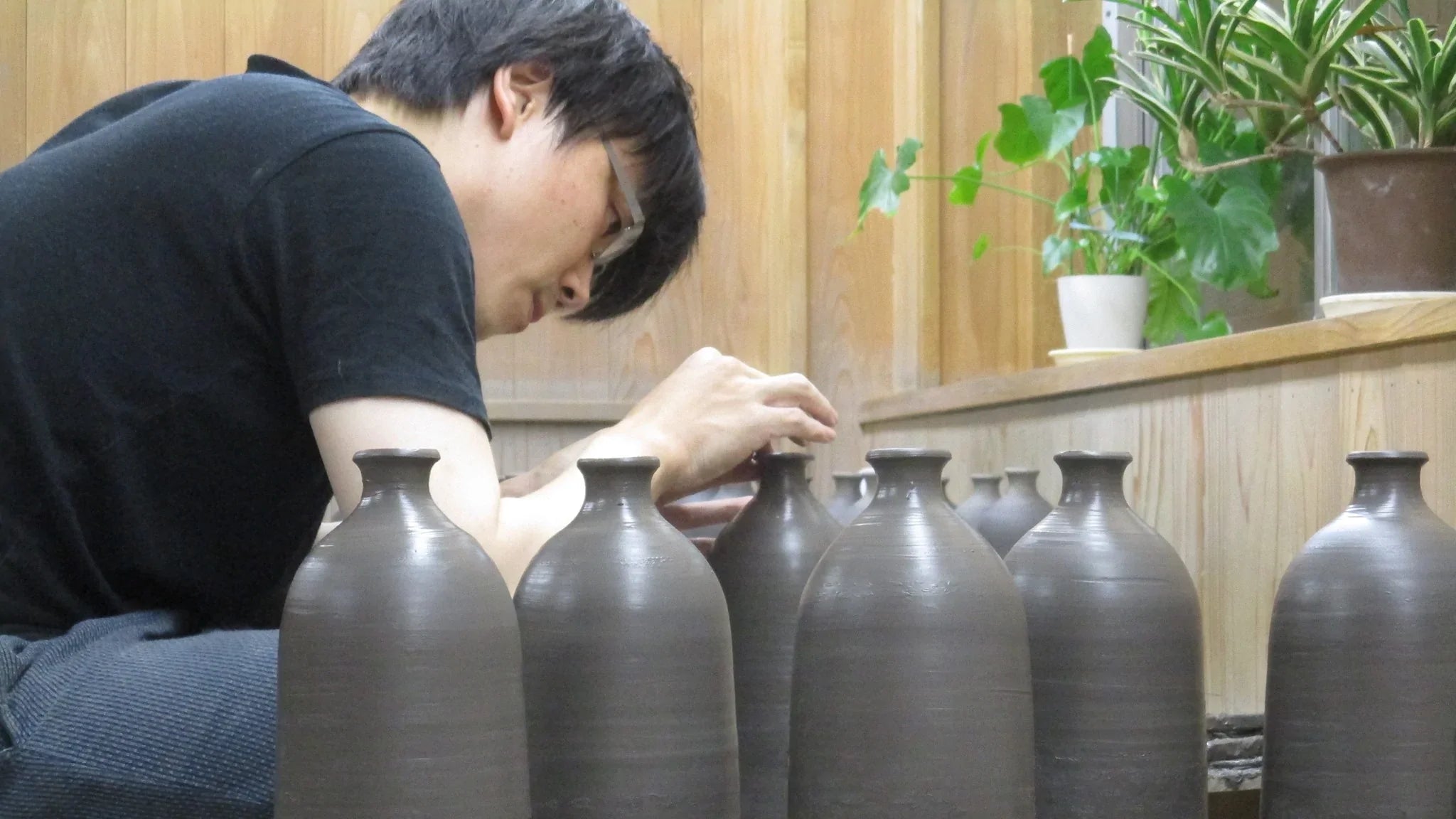
Related posts
Filters


